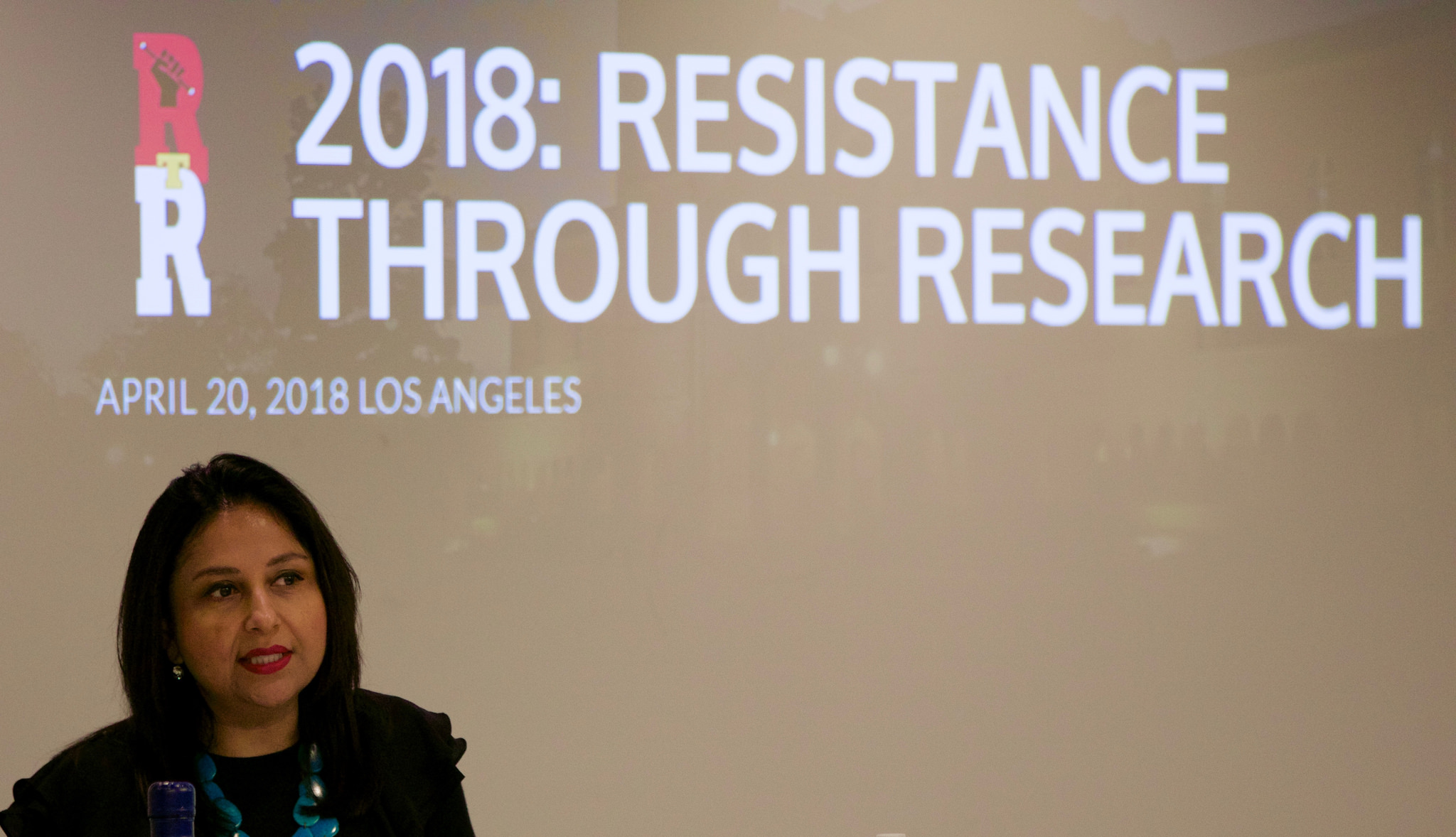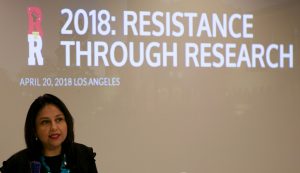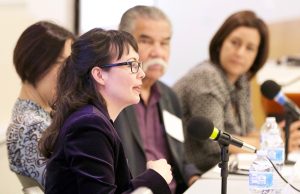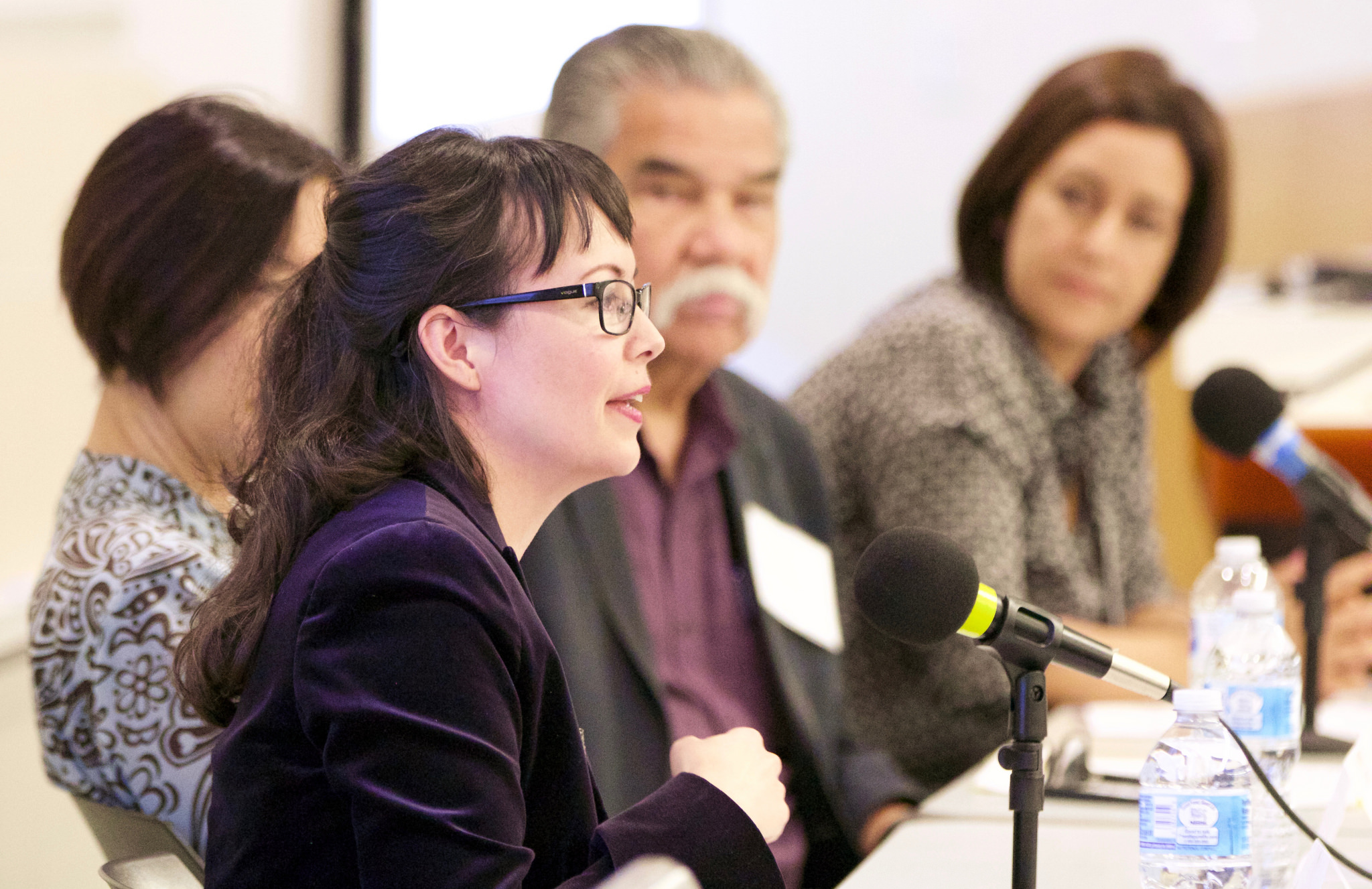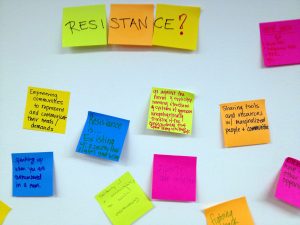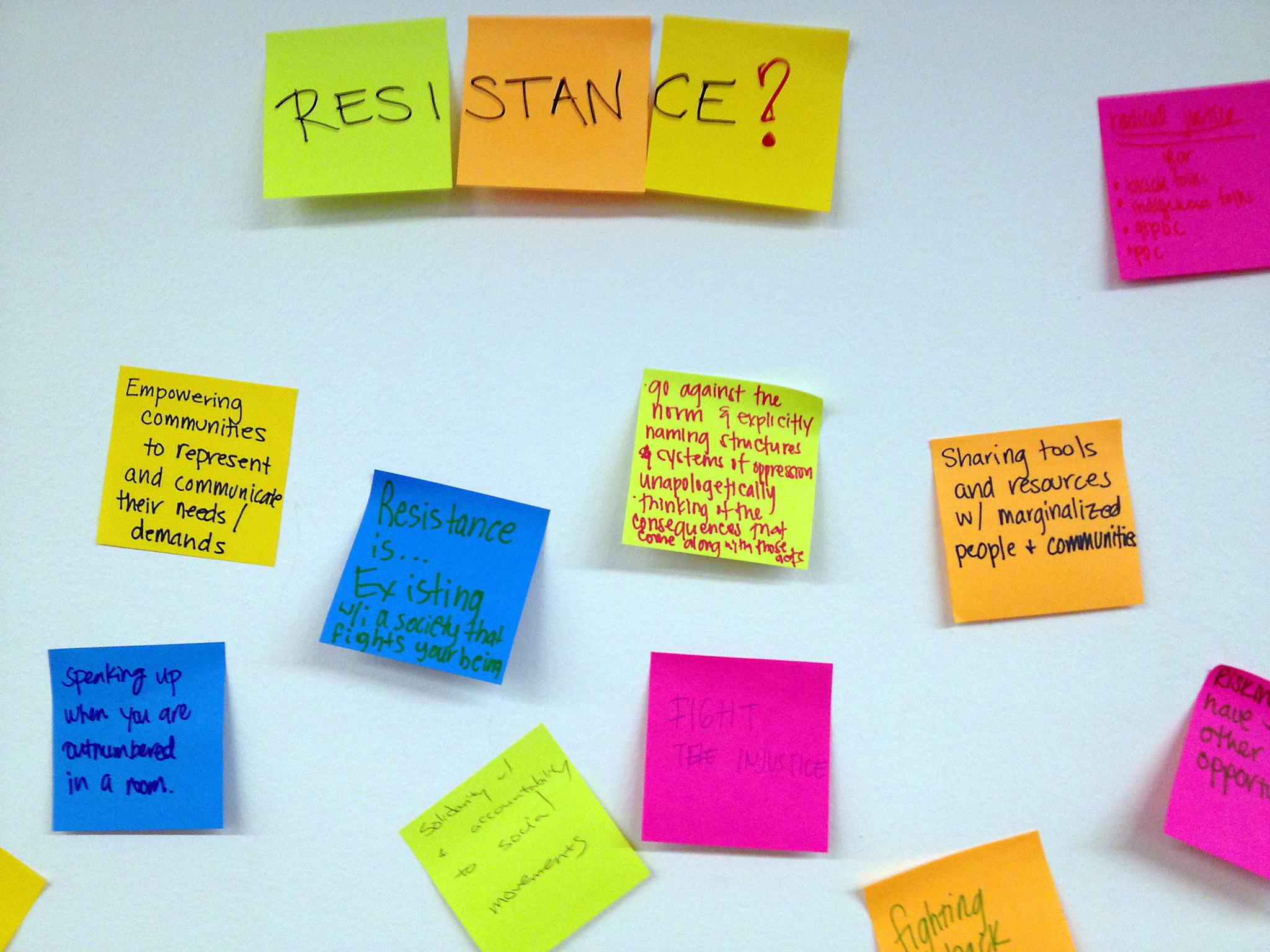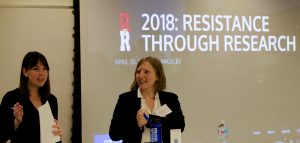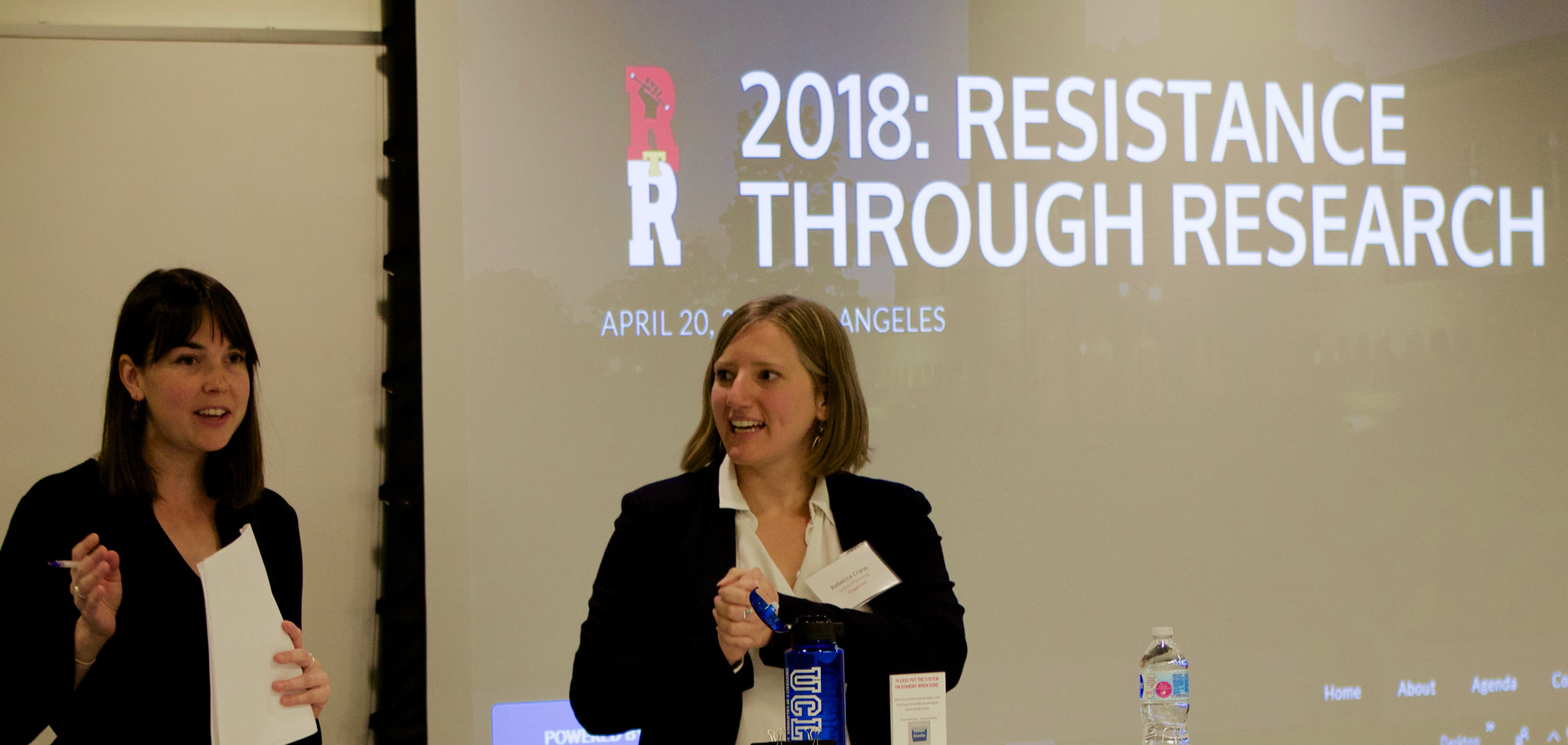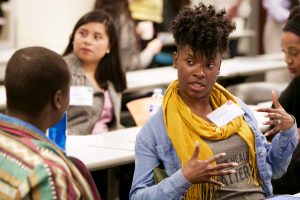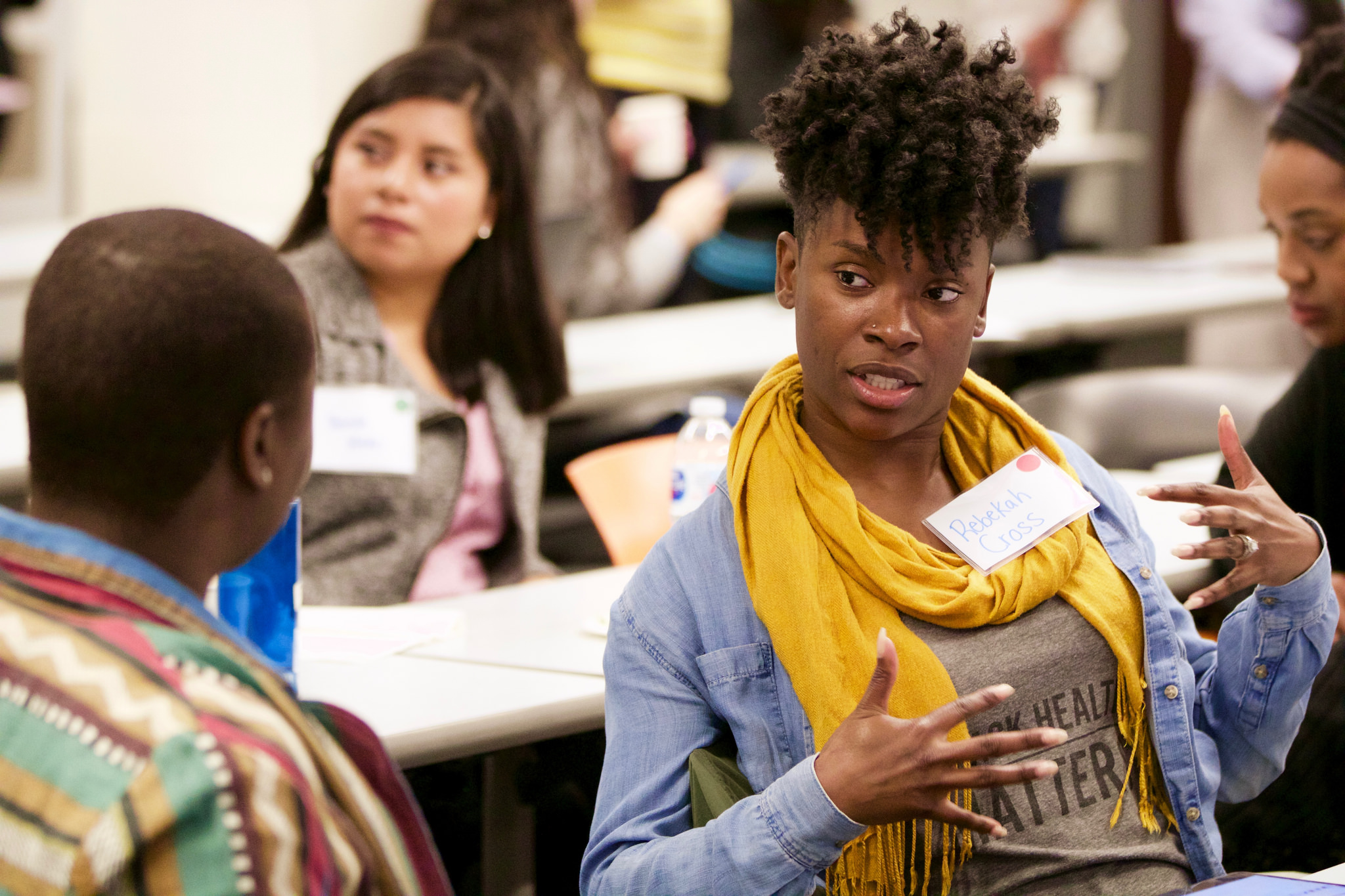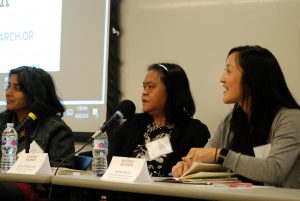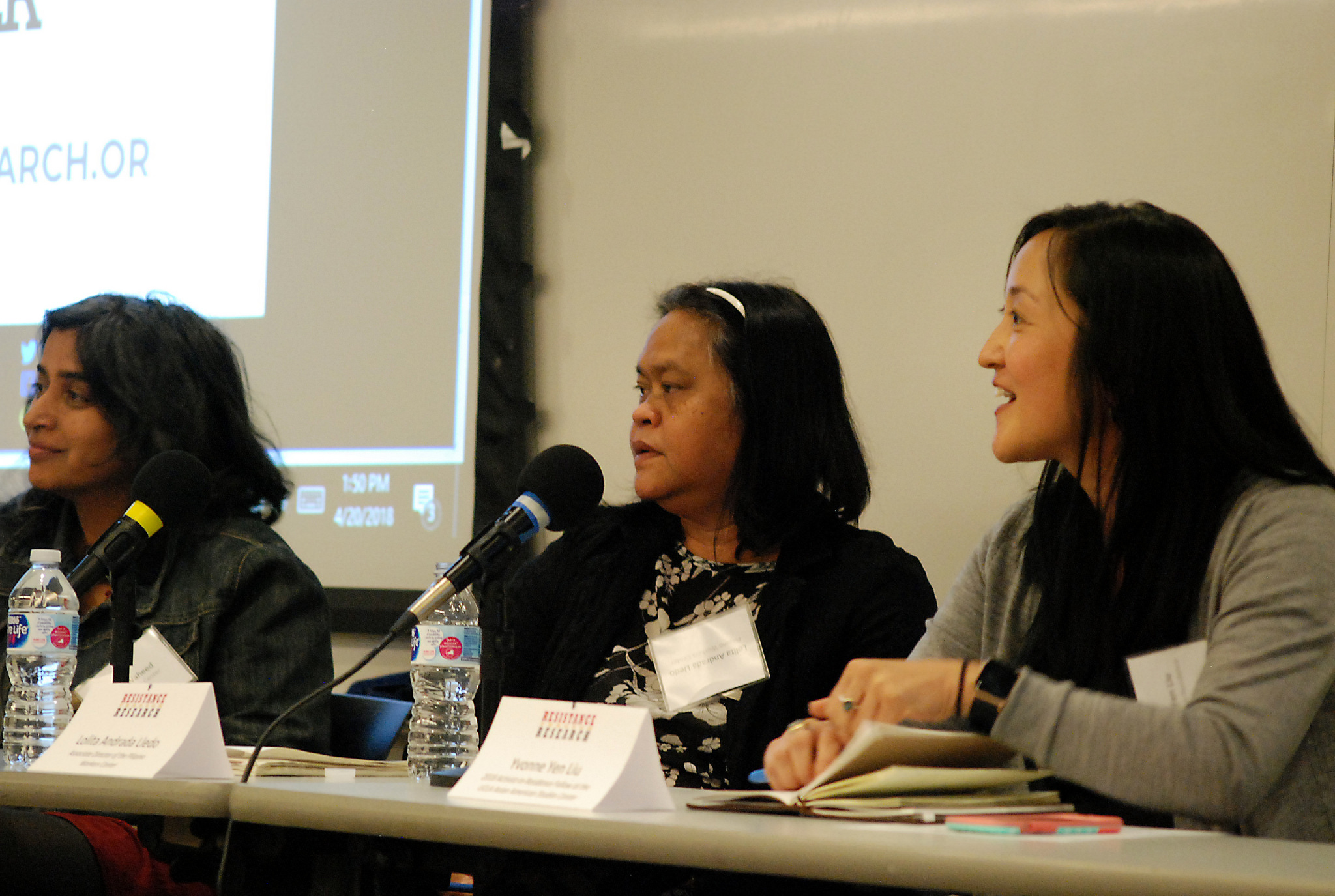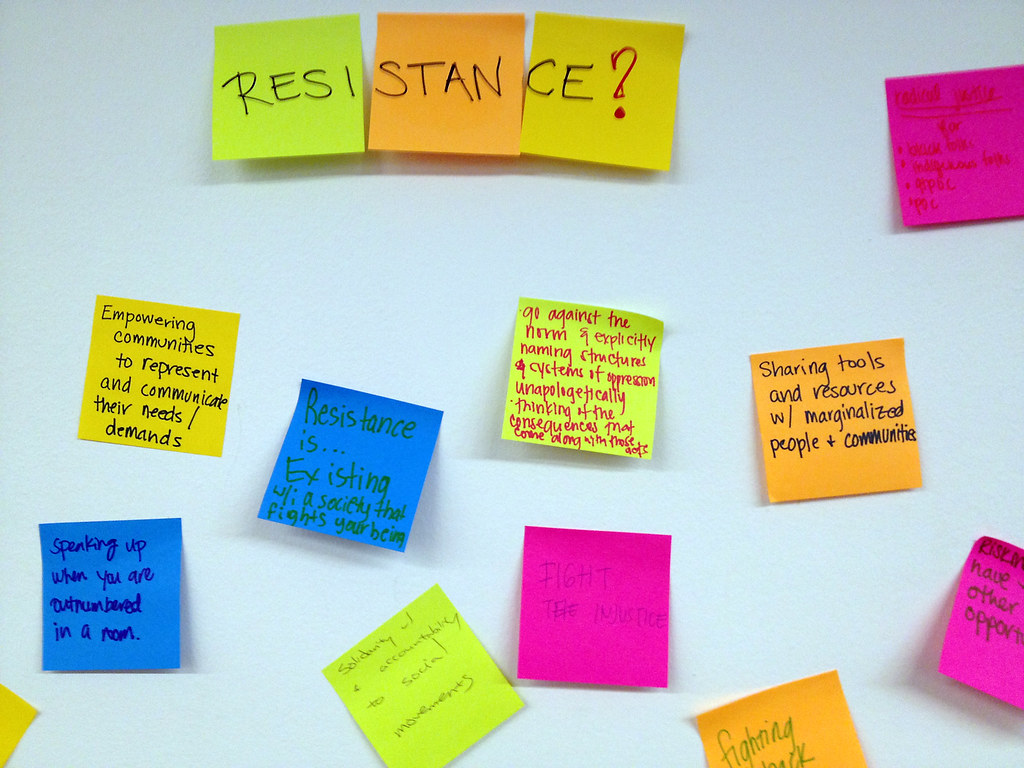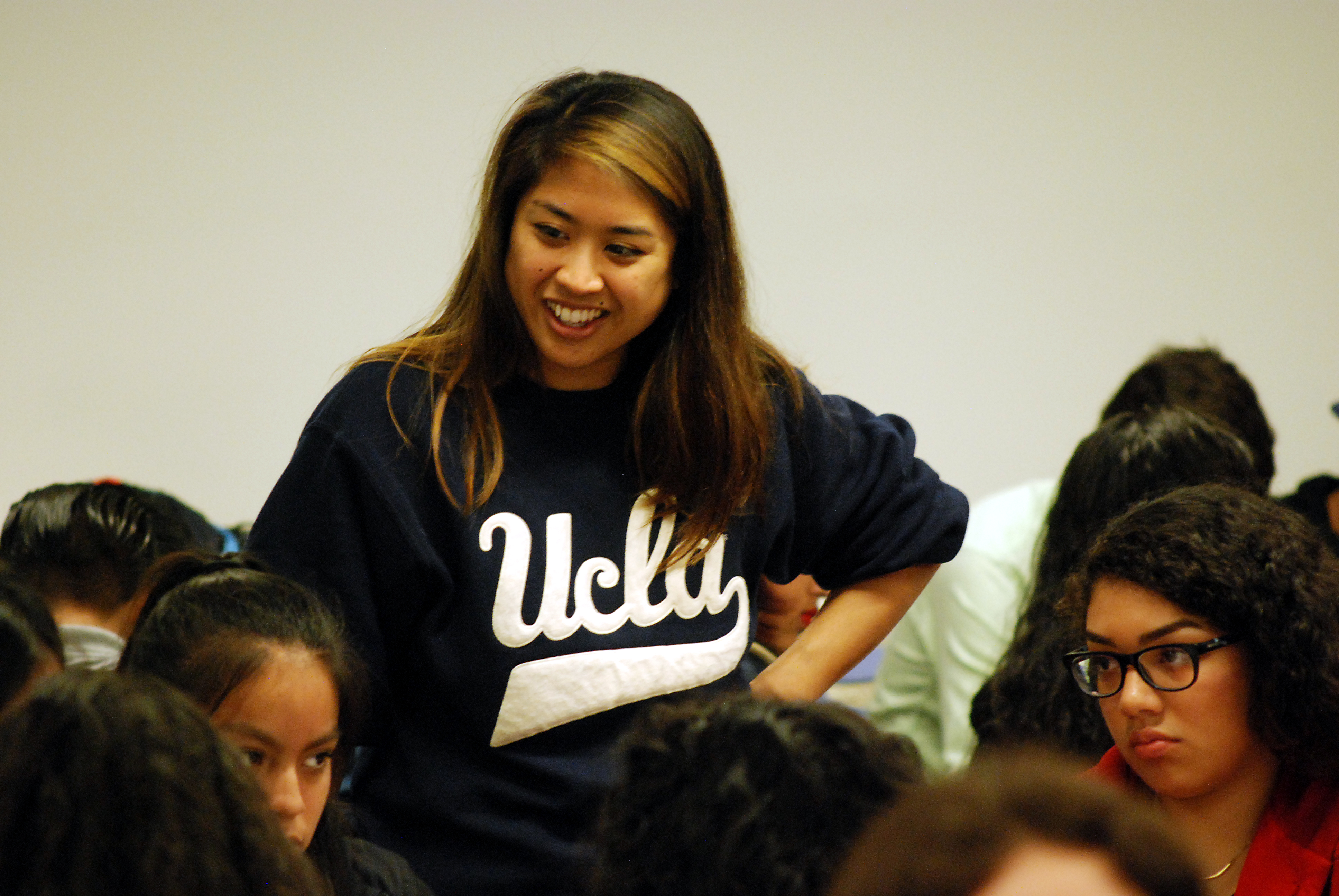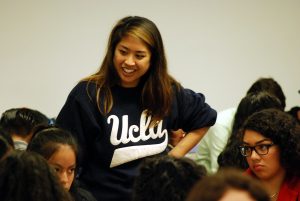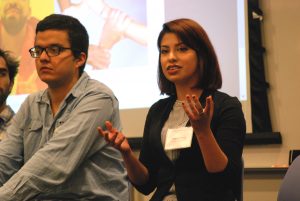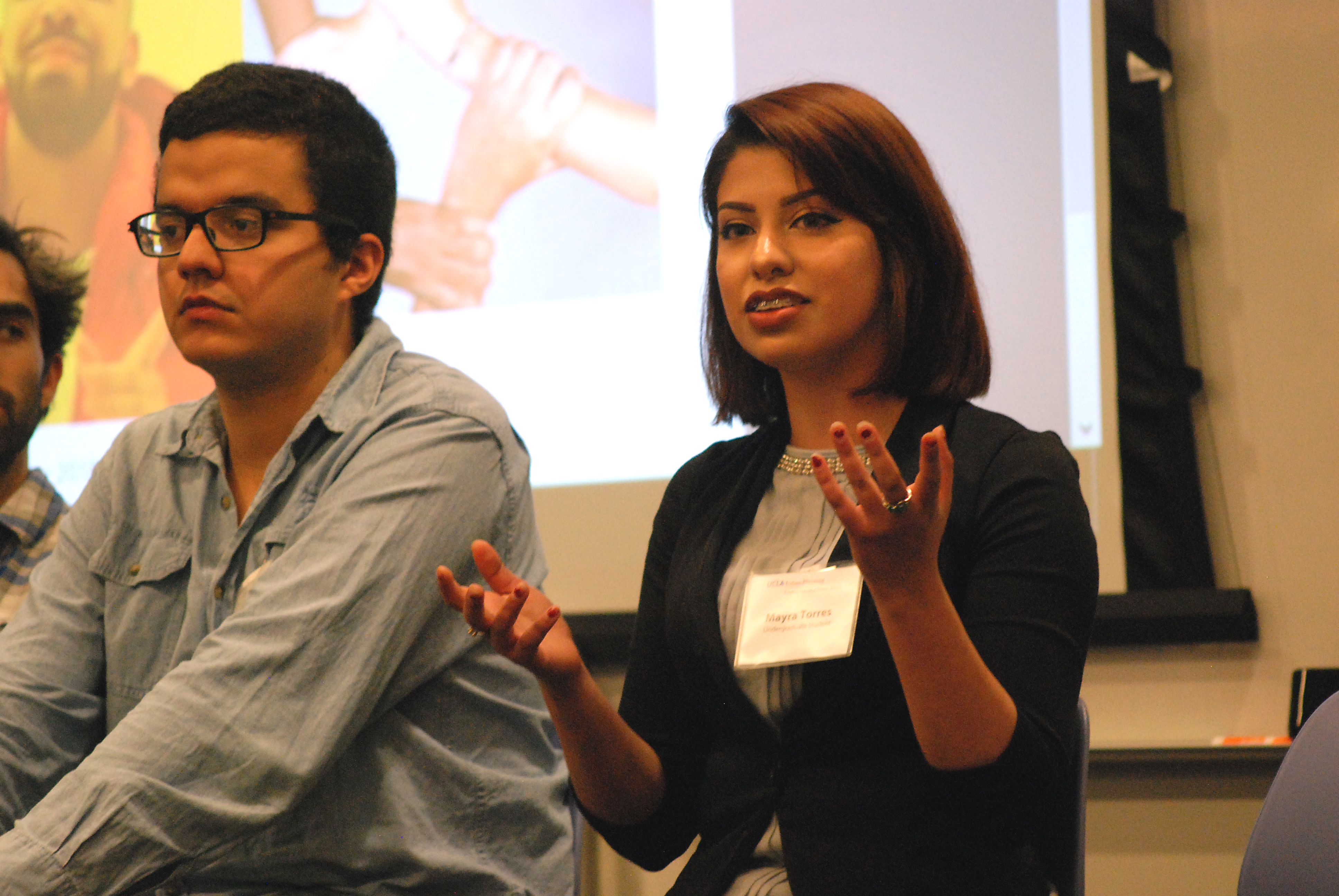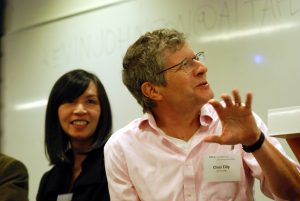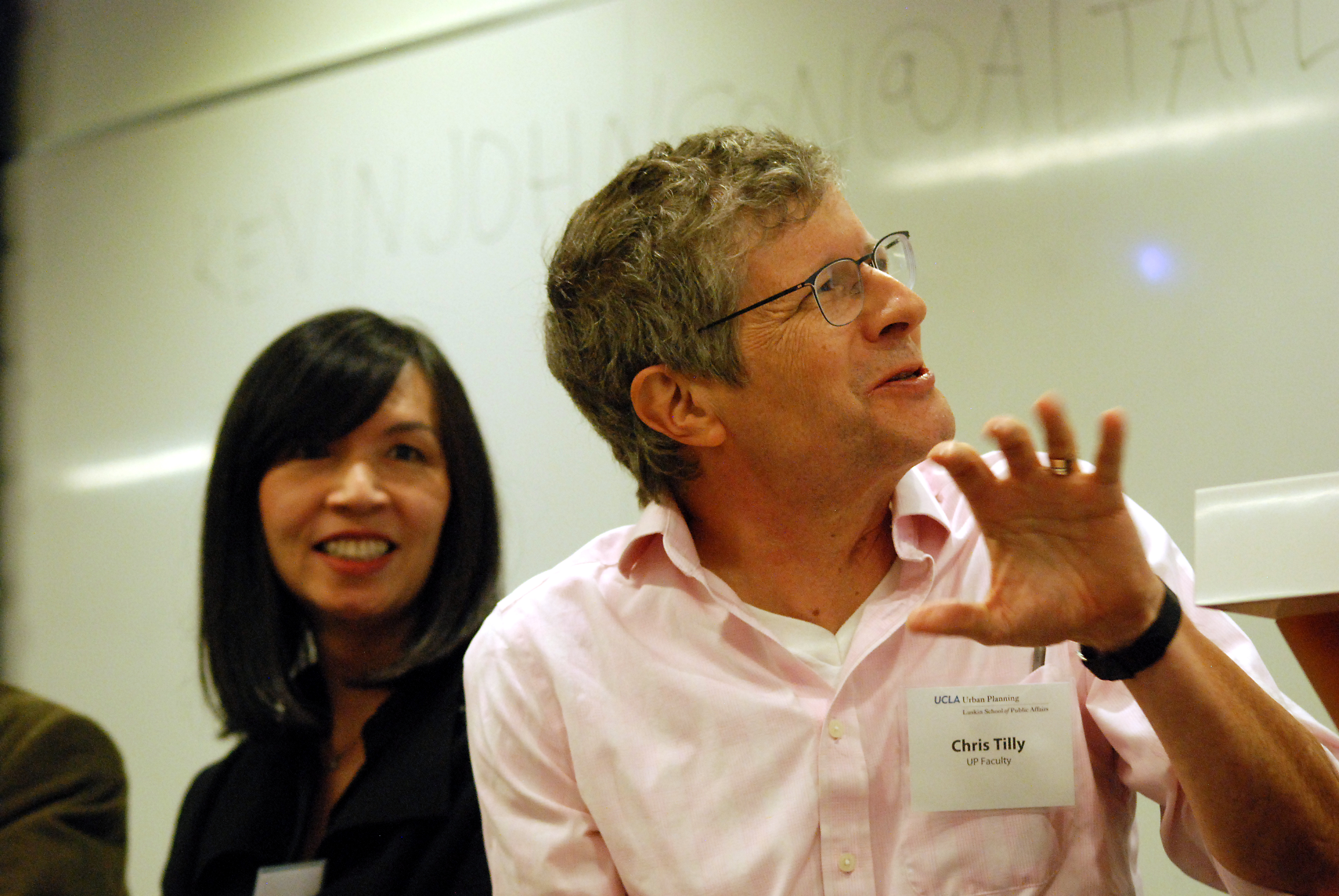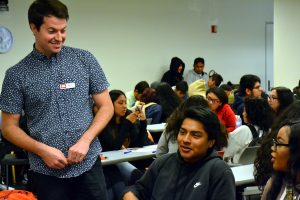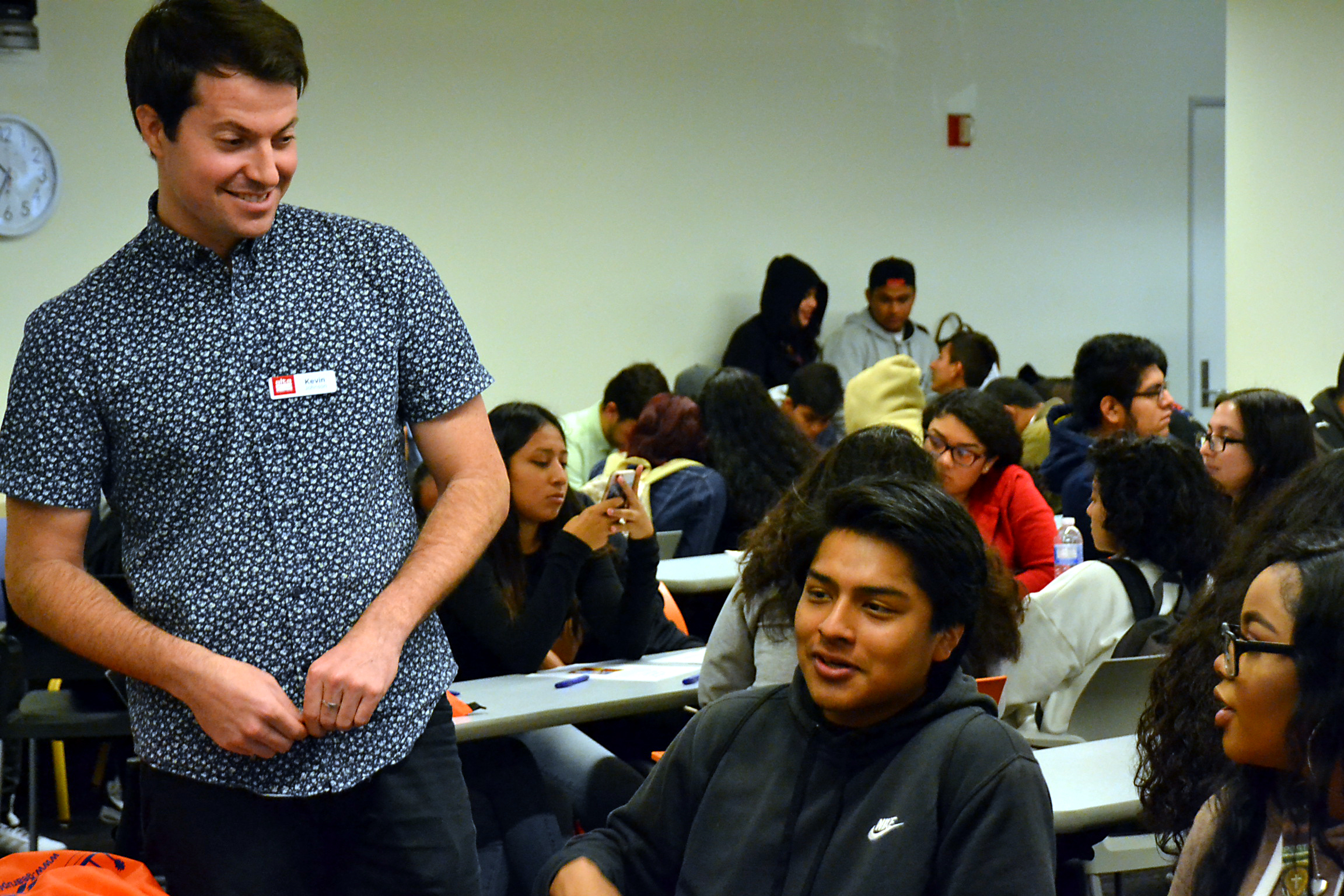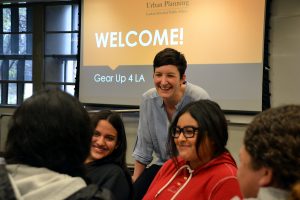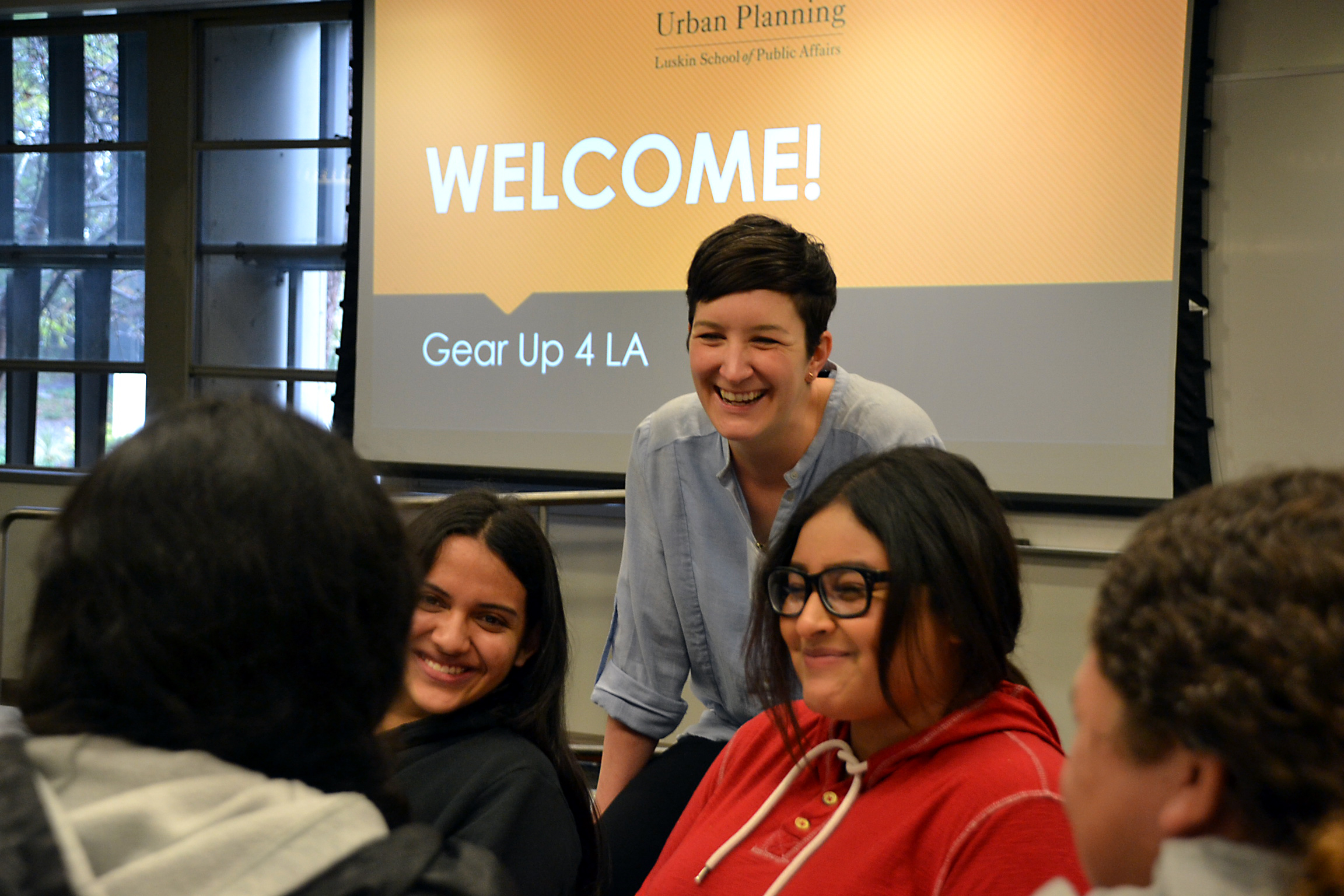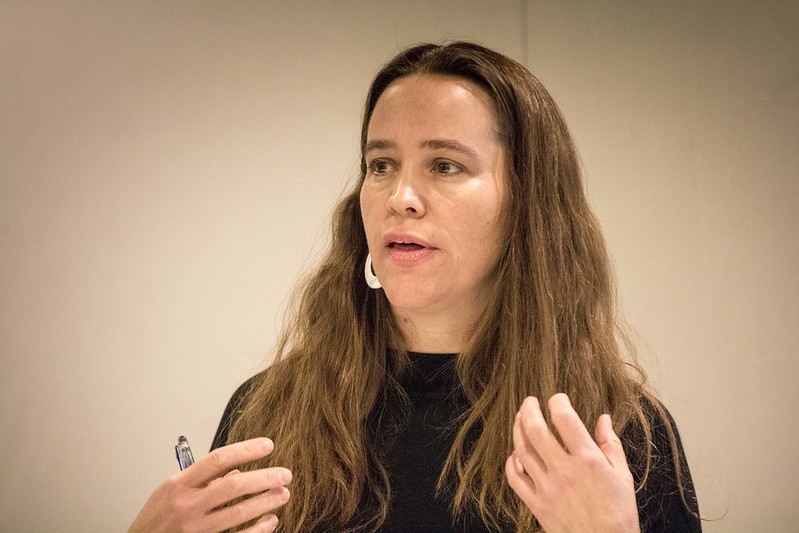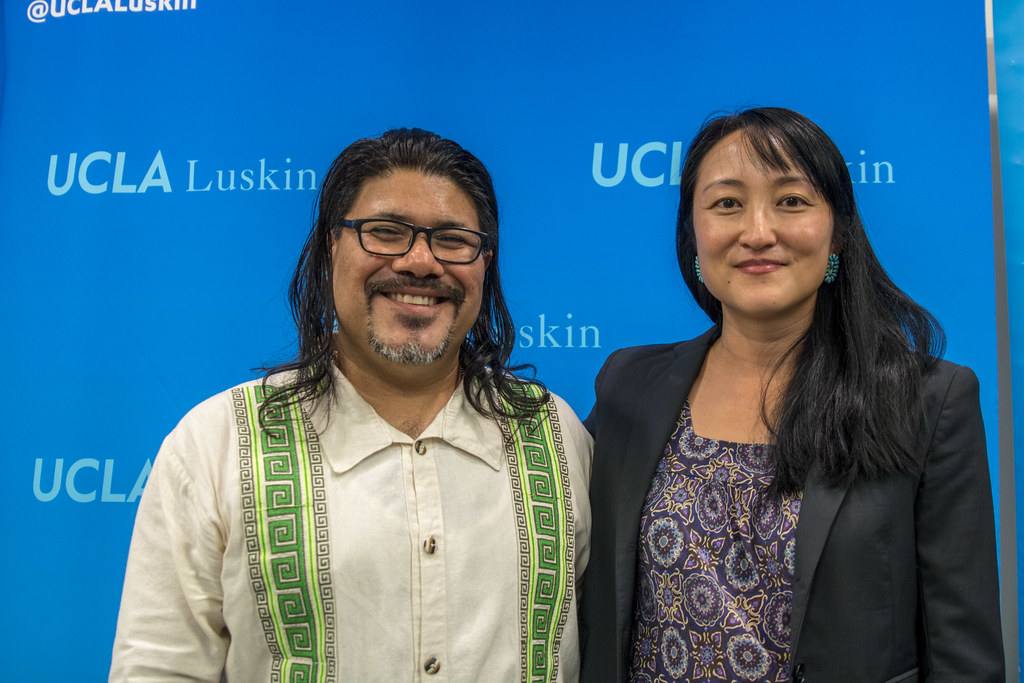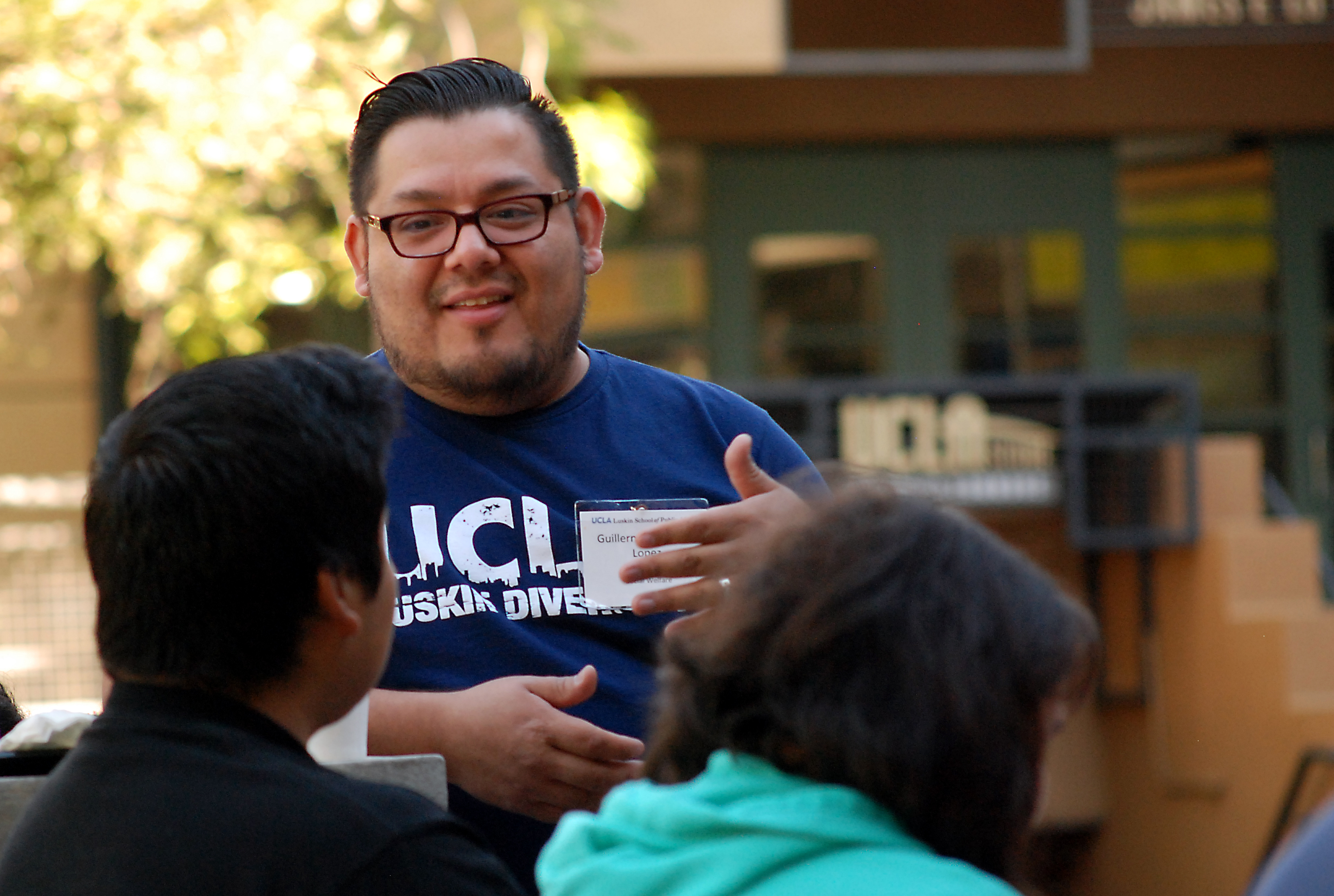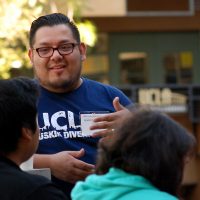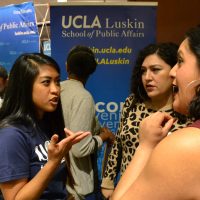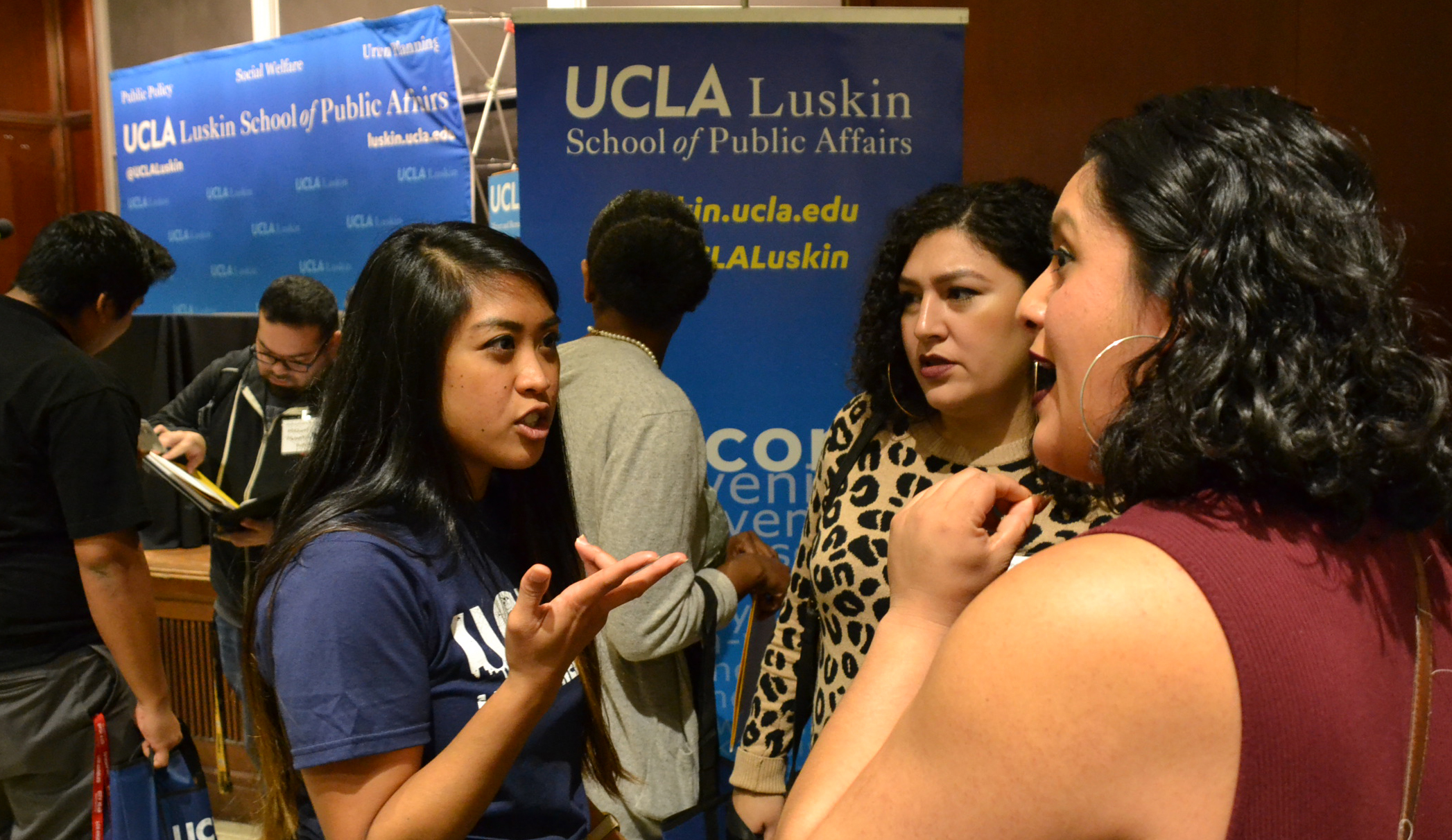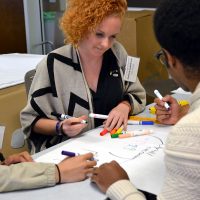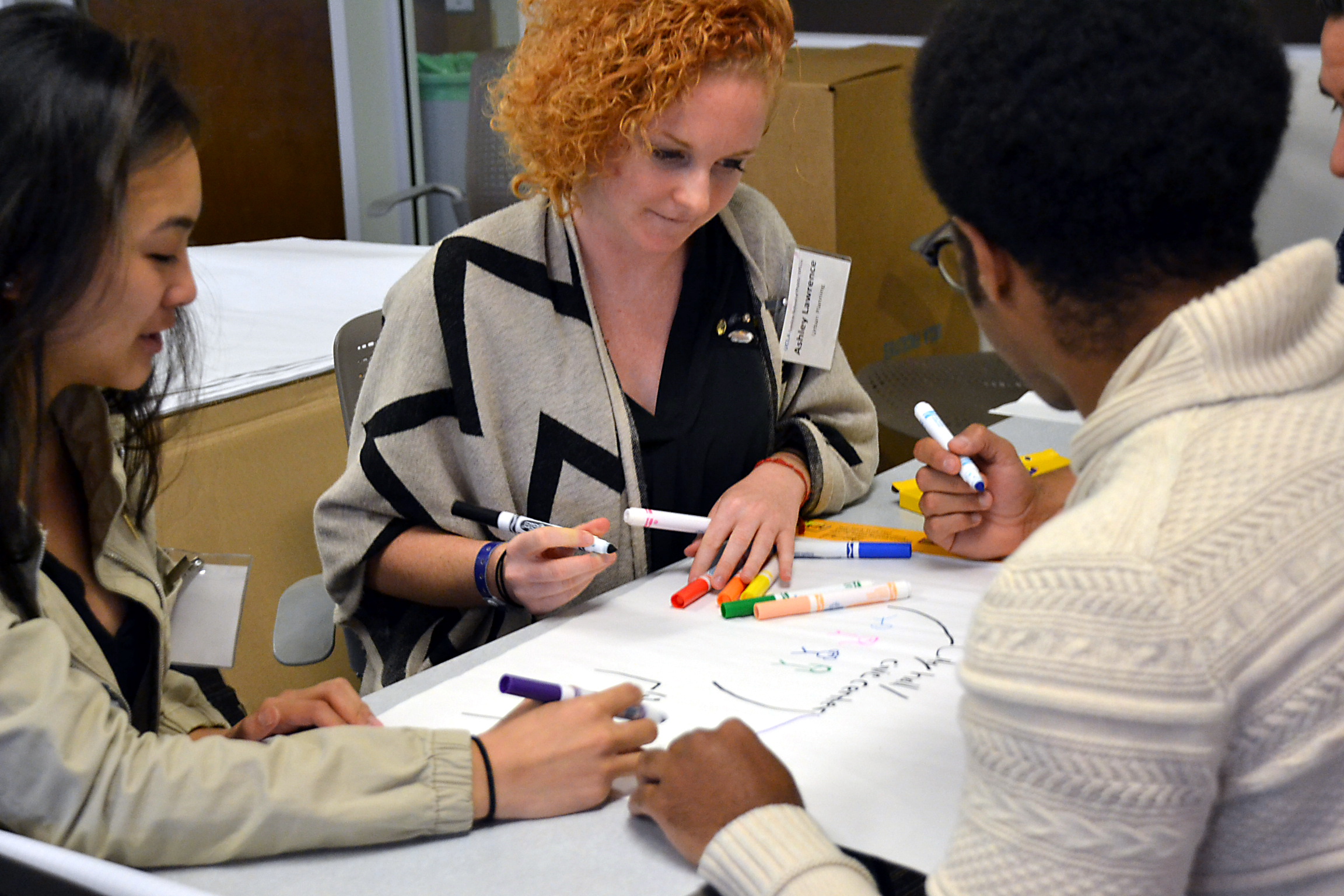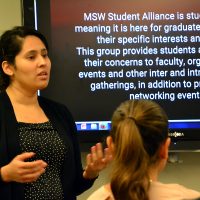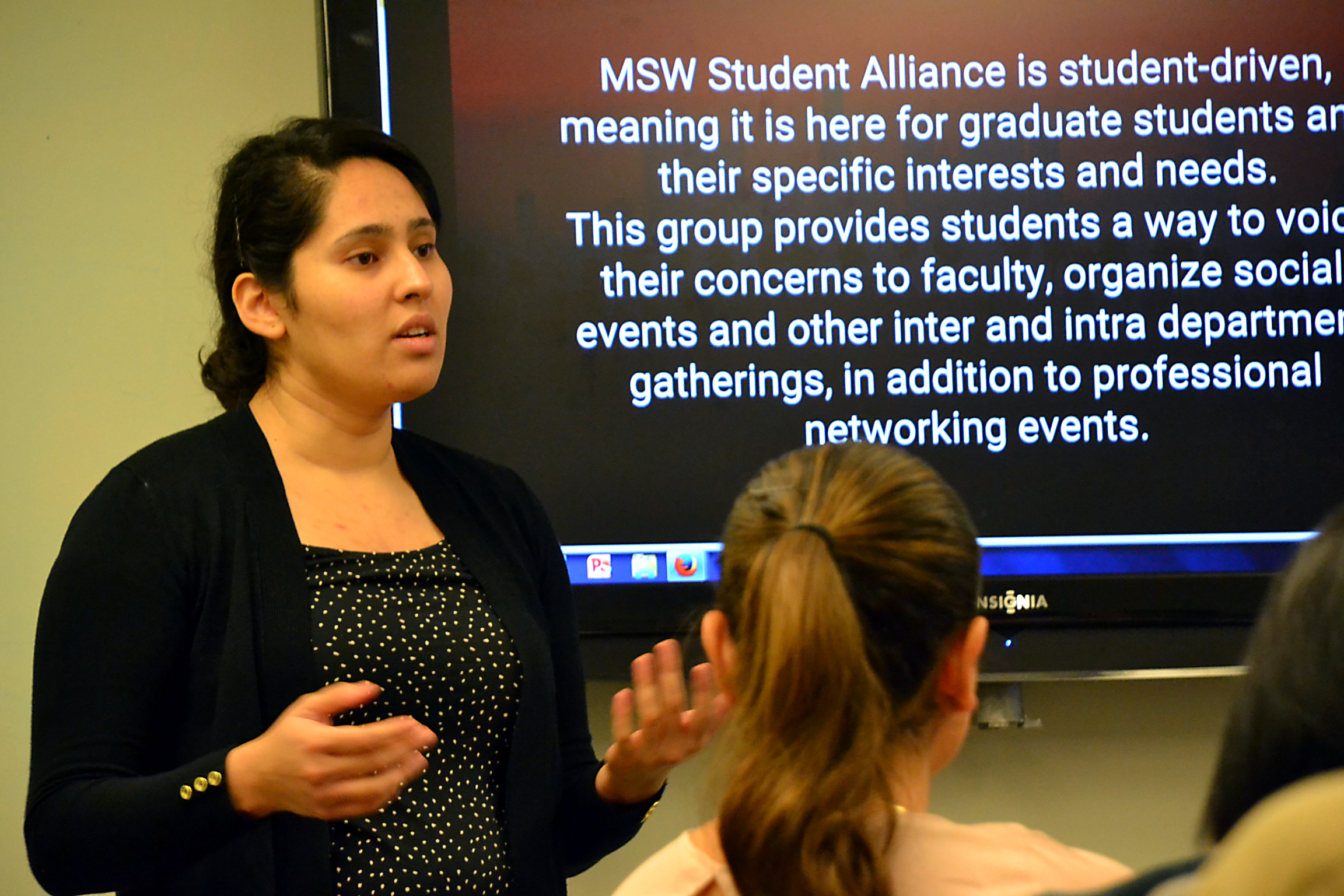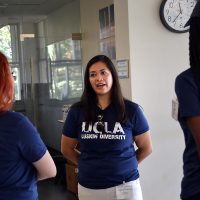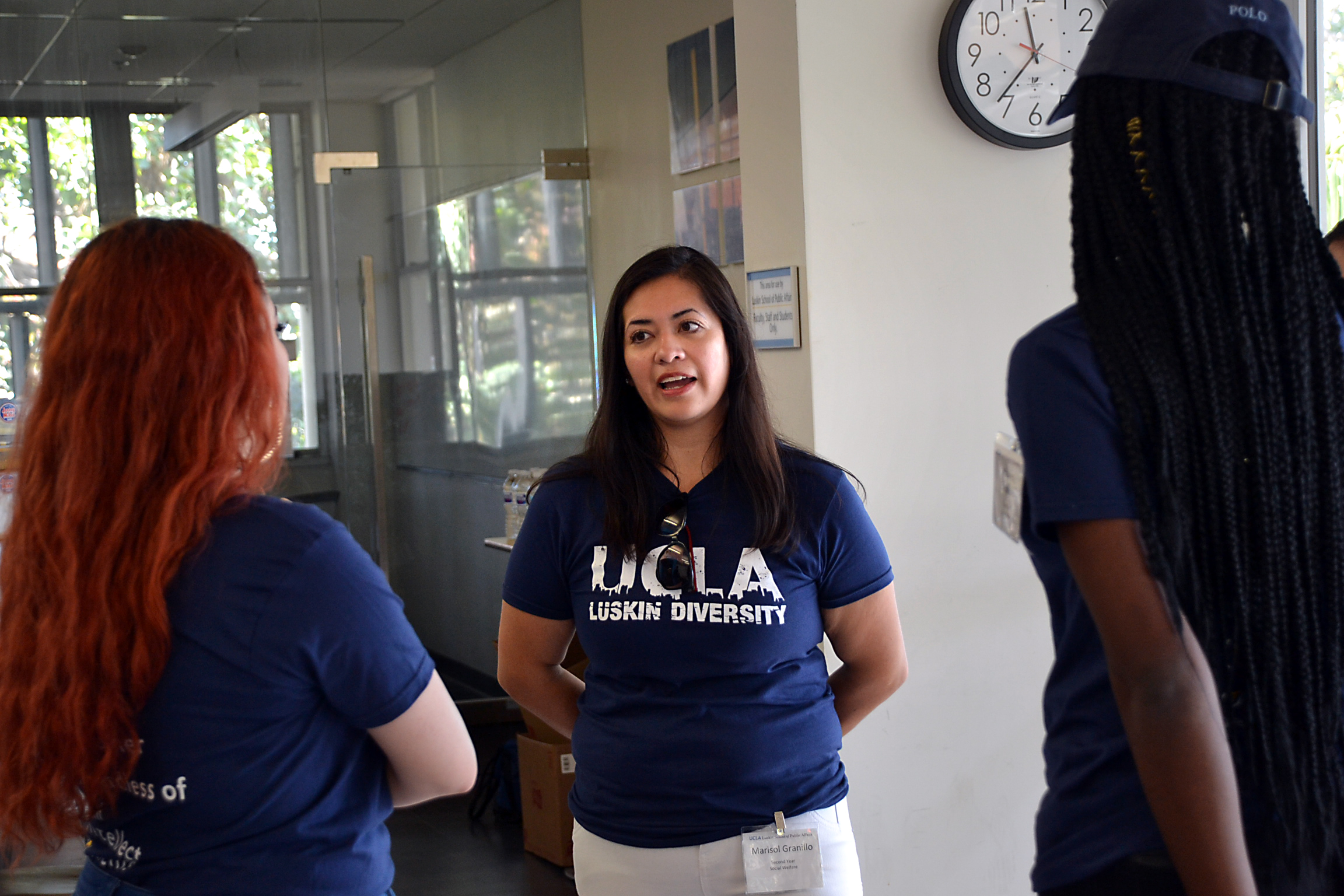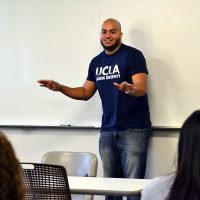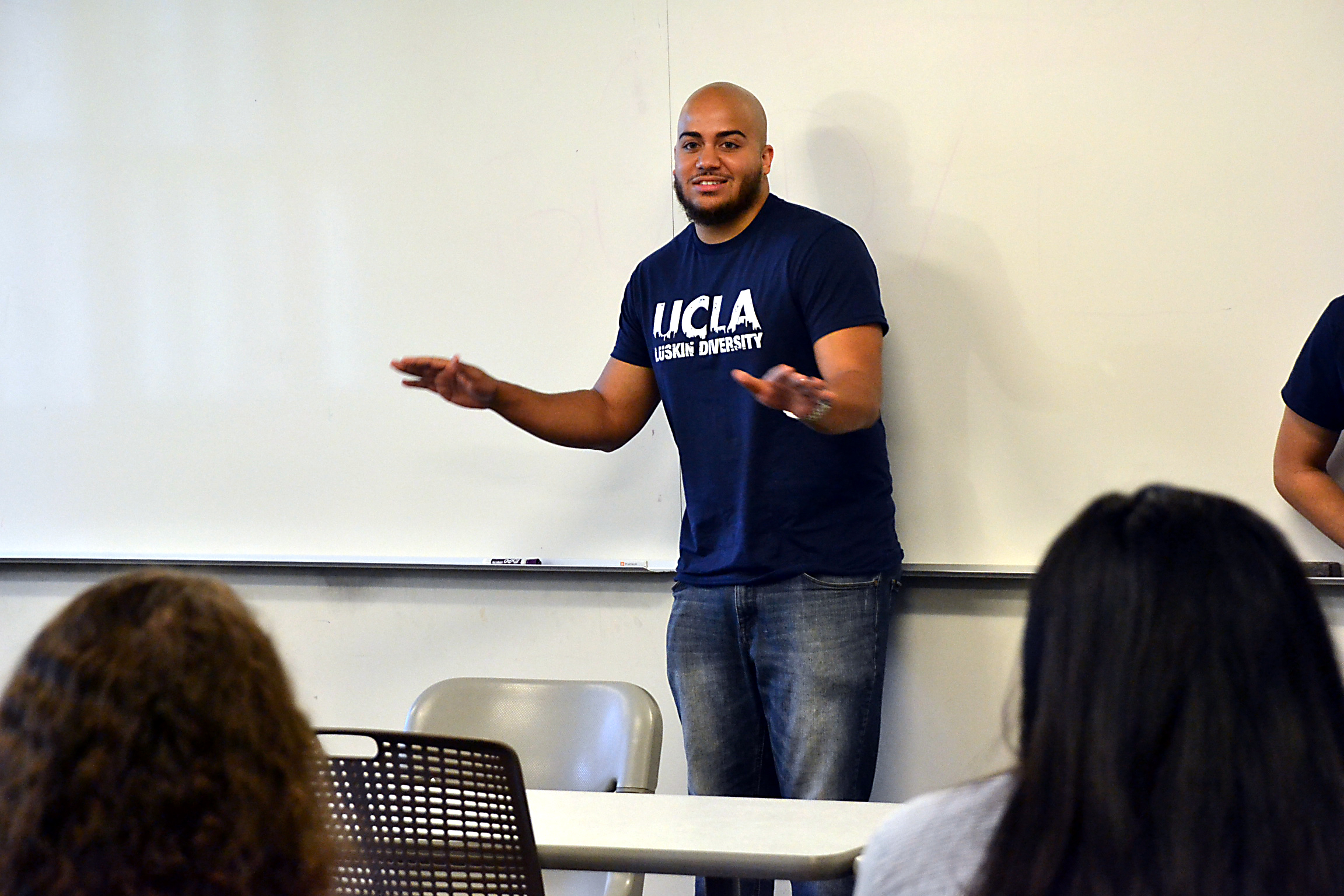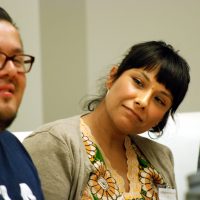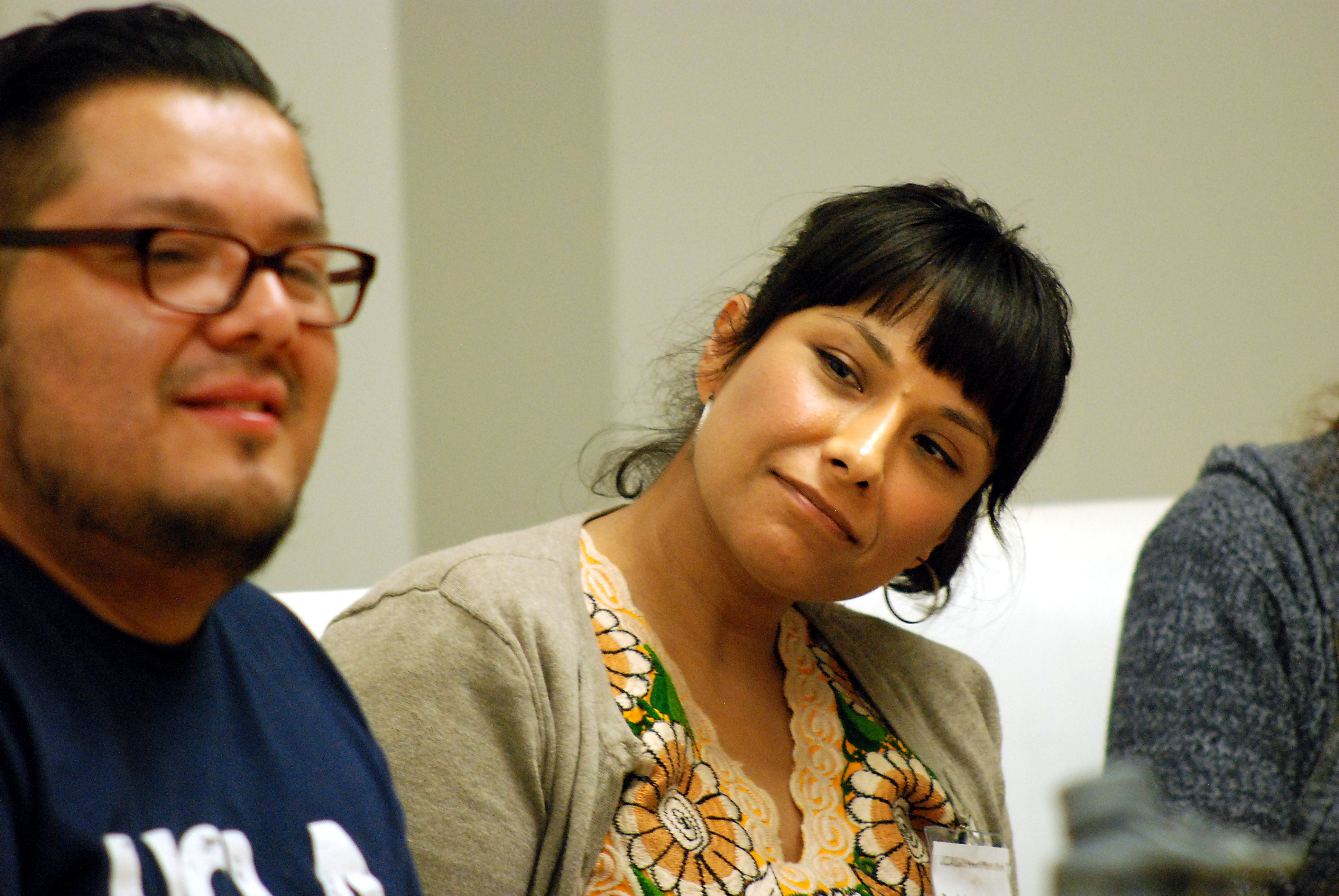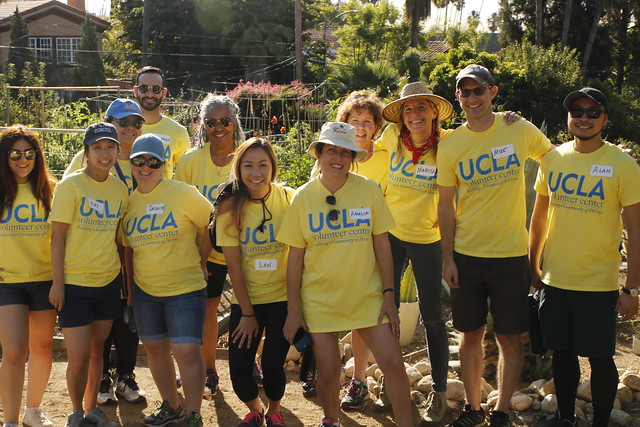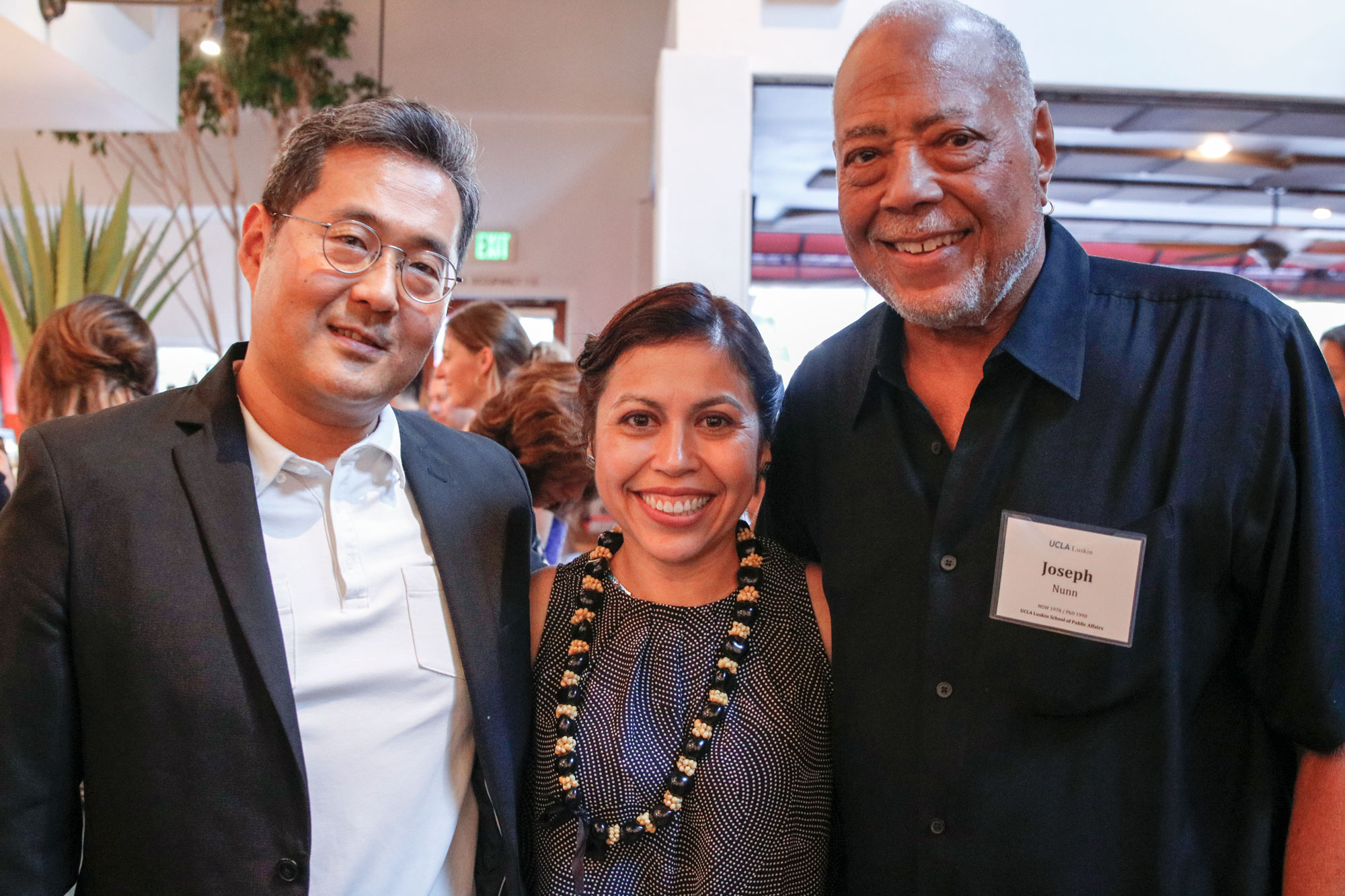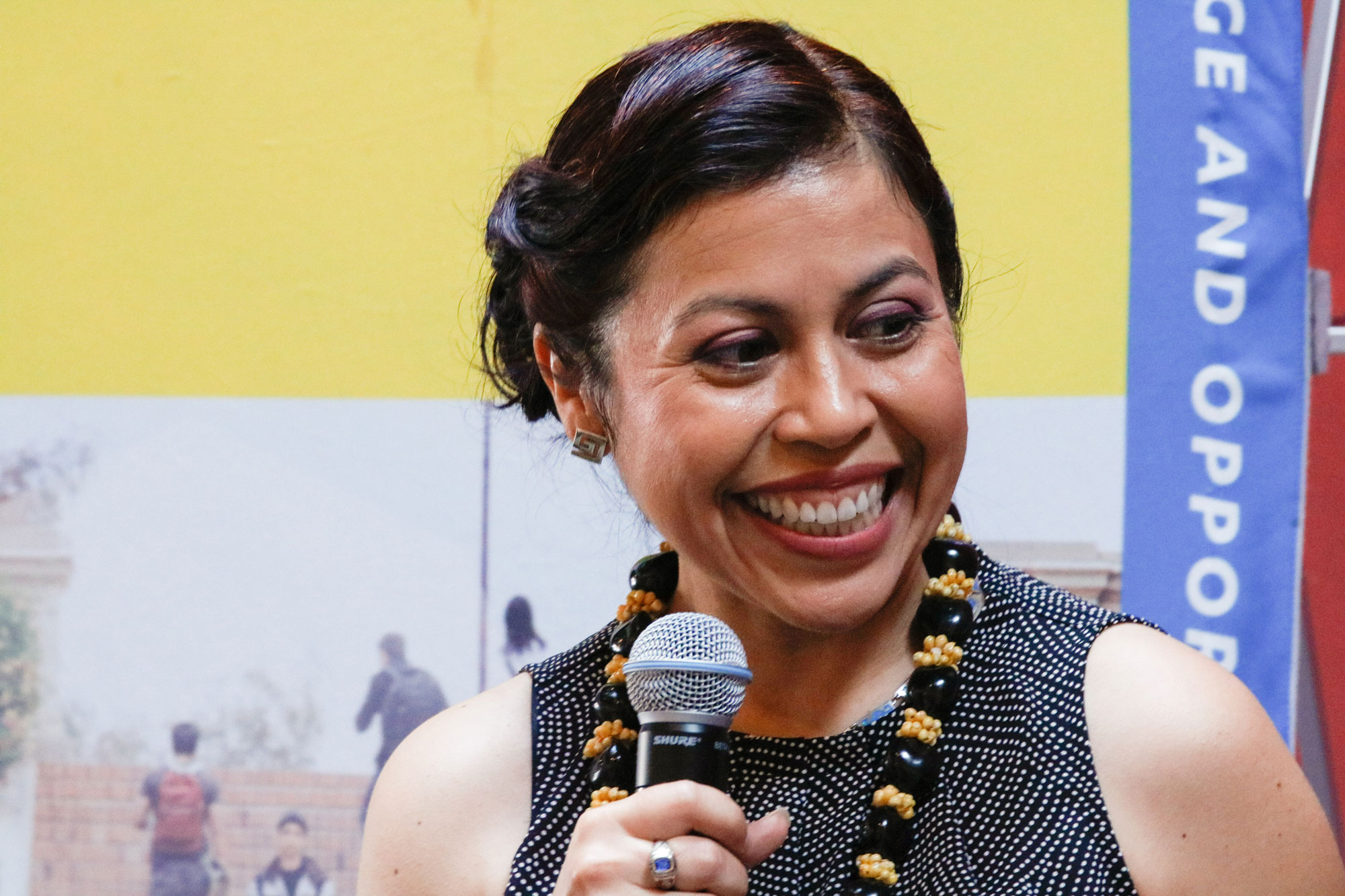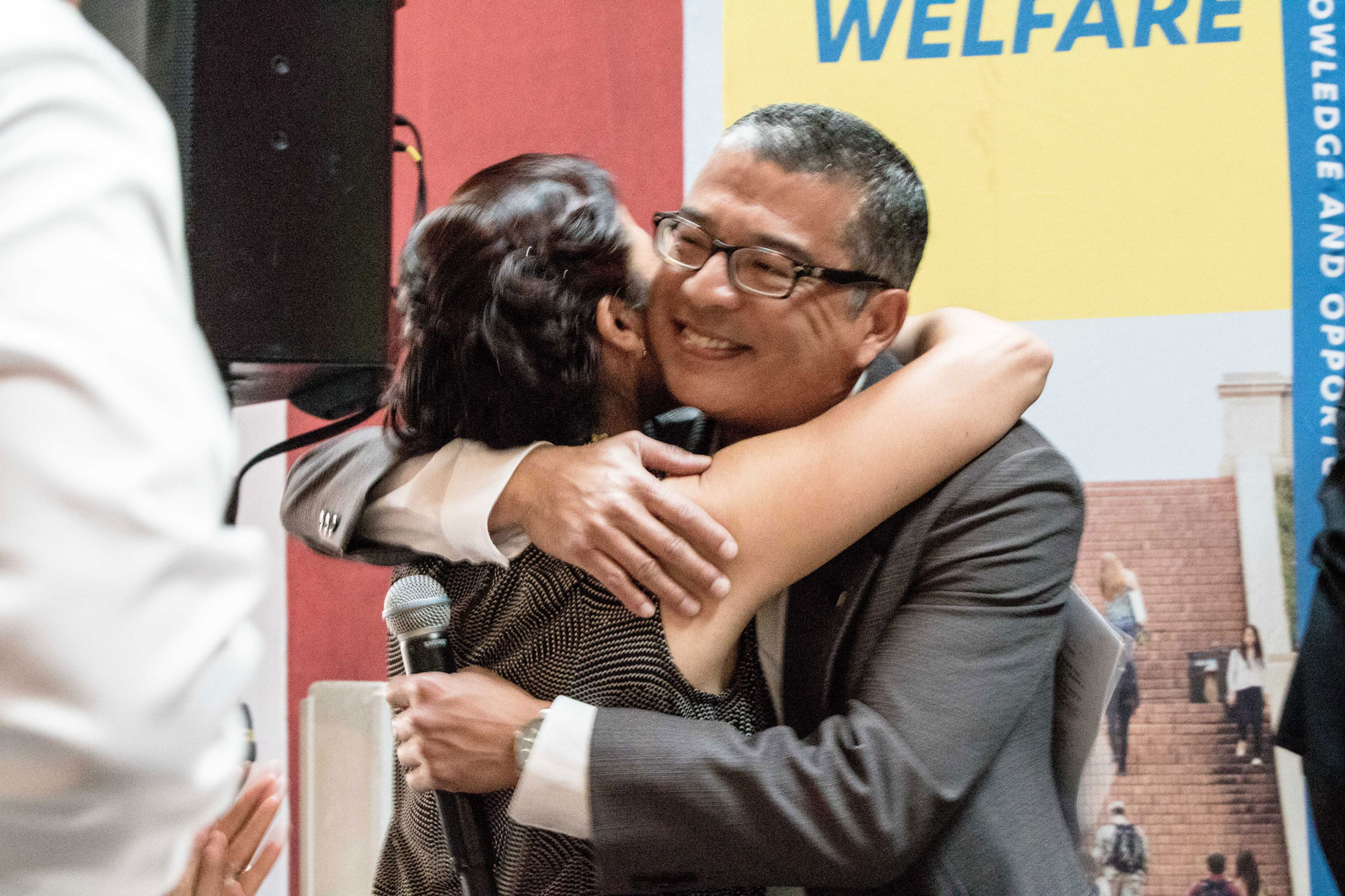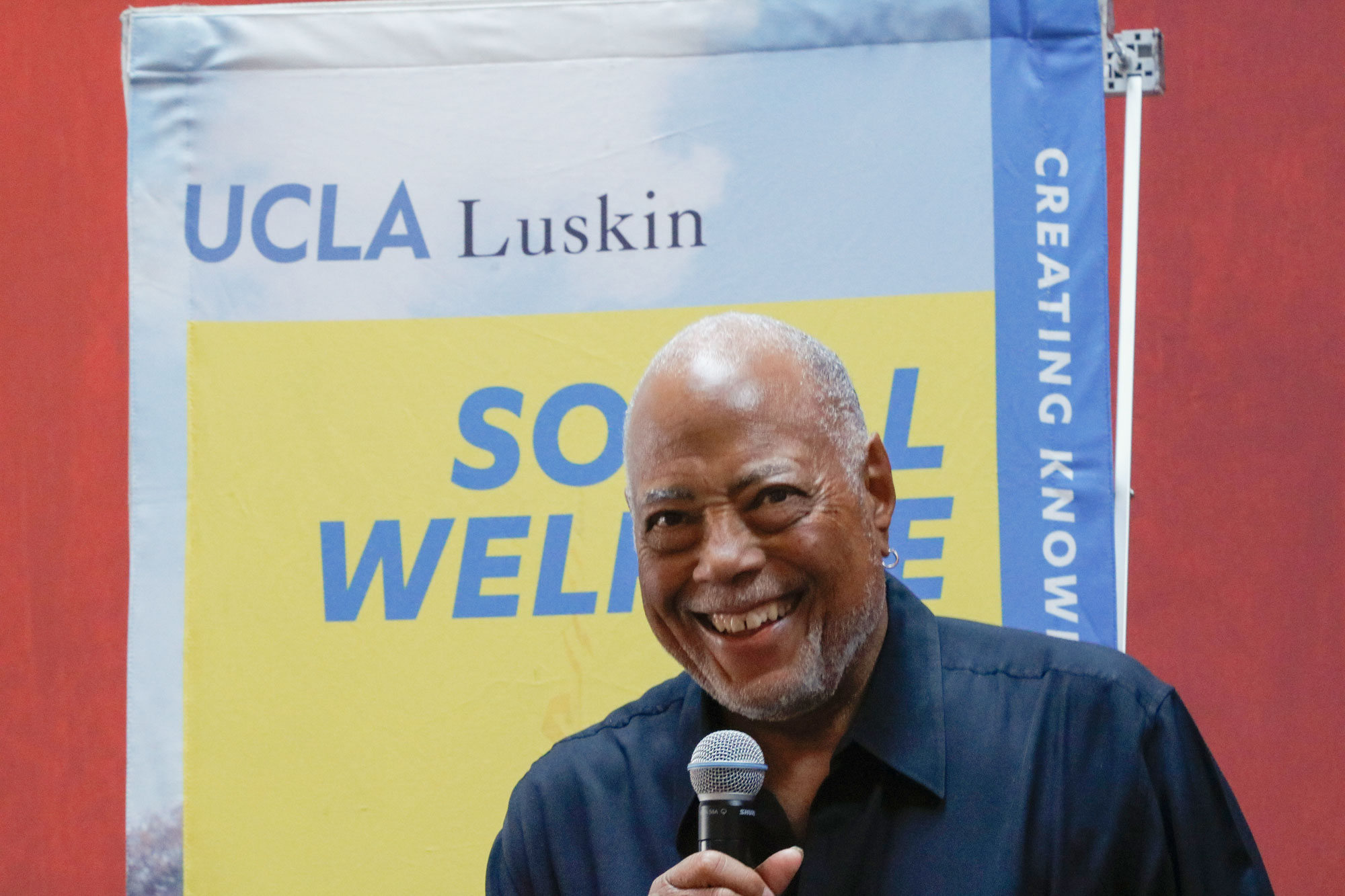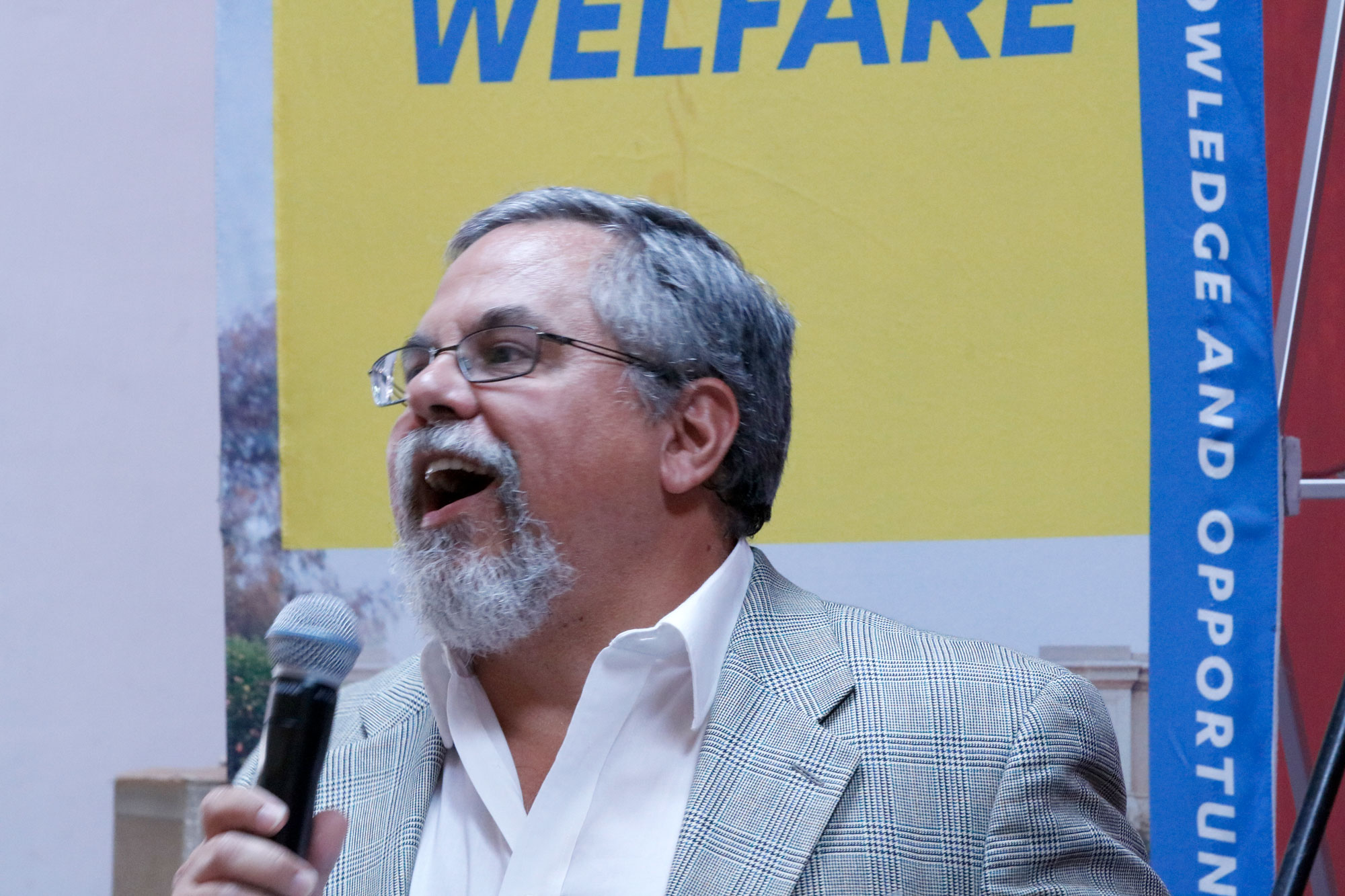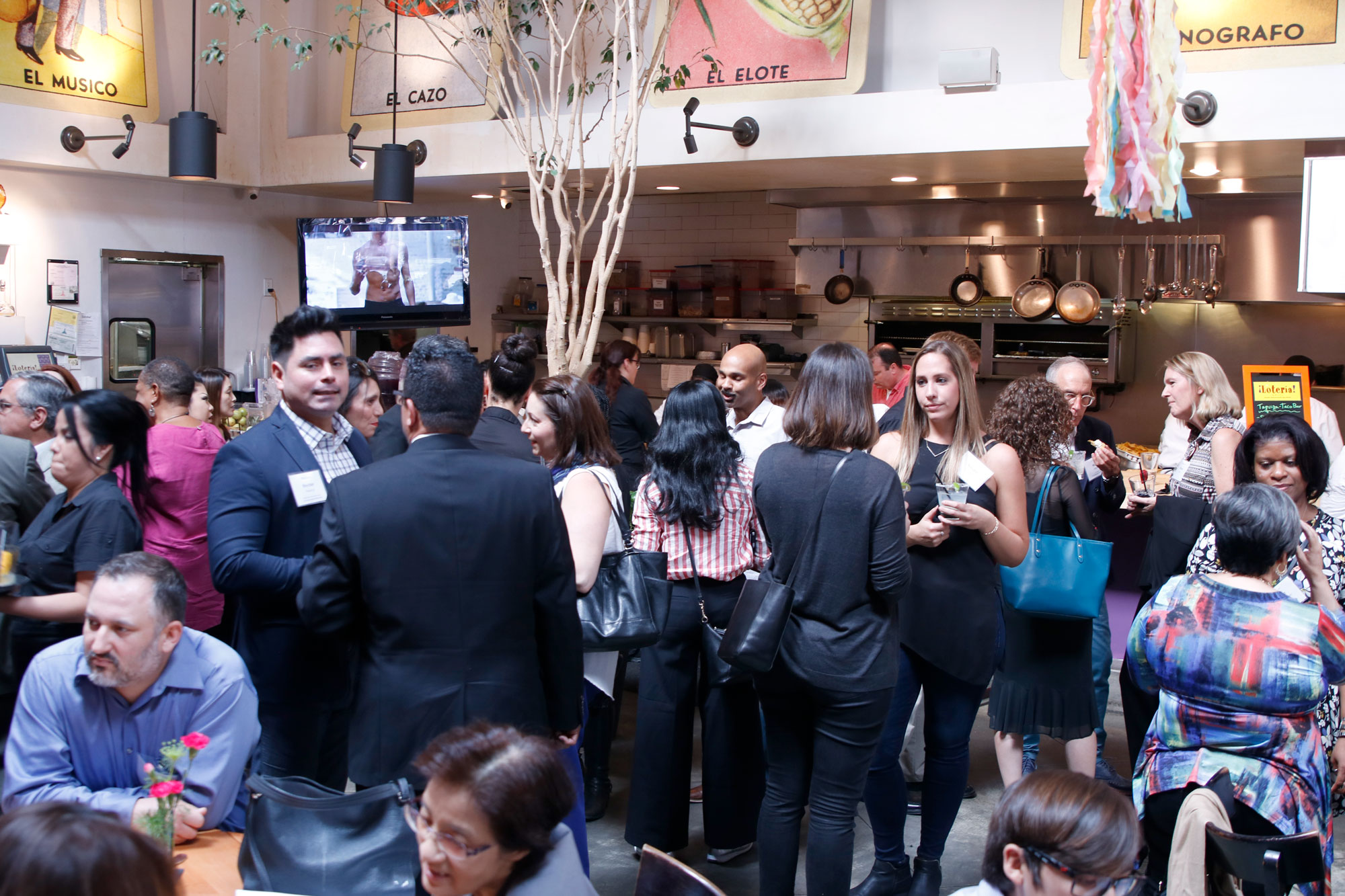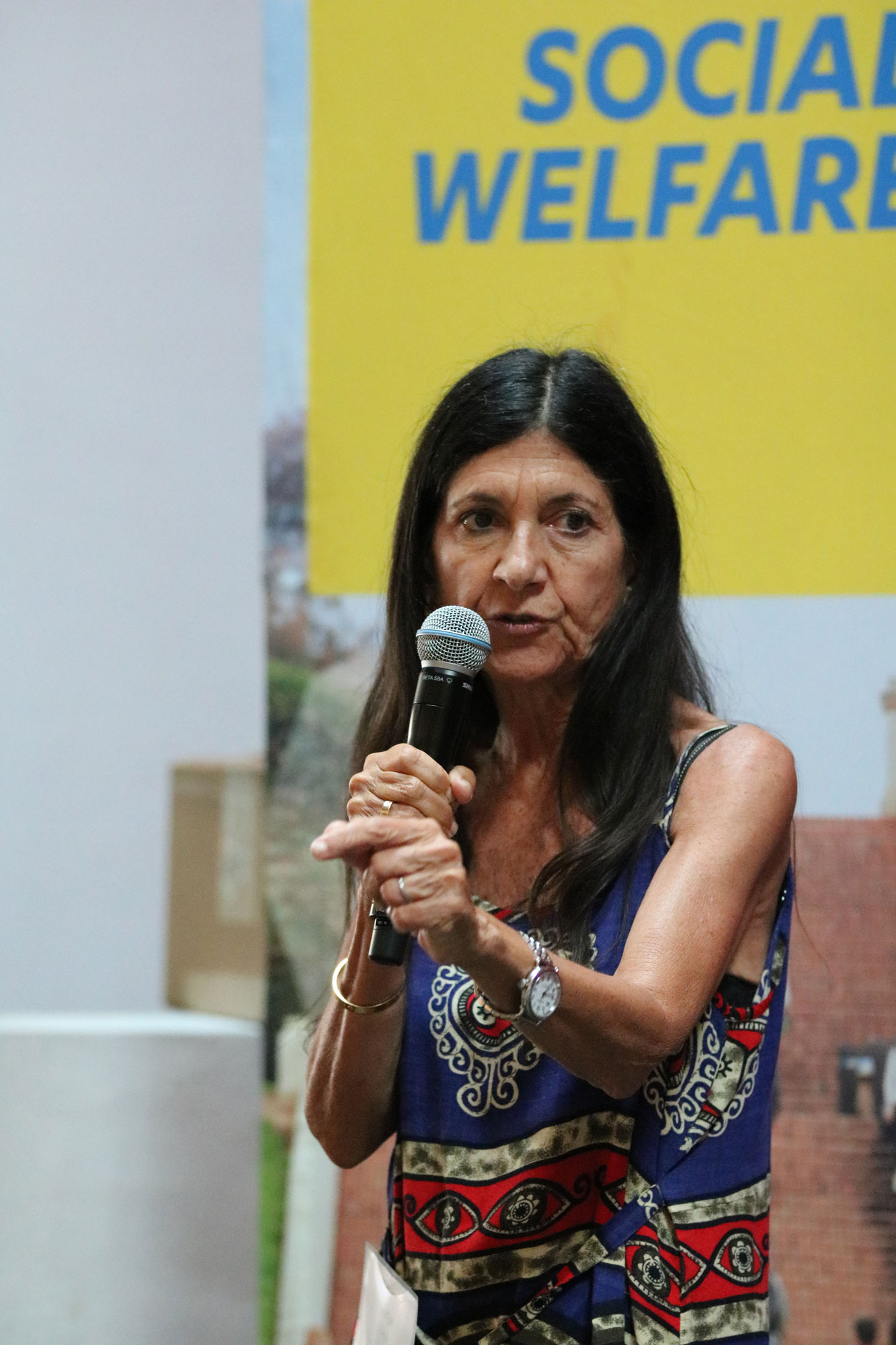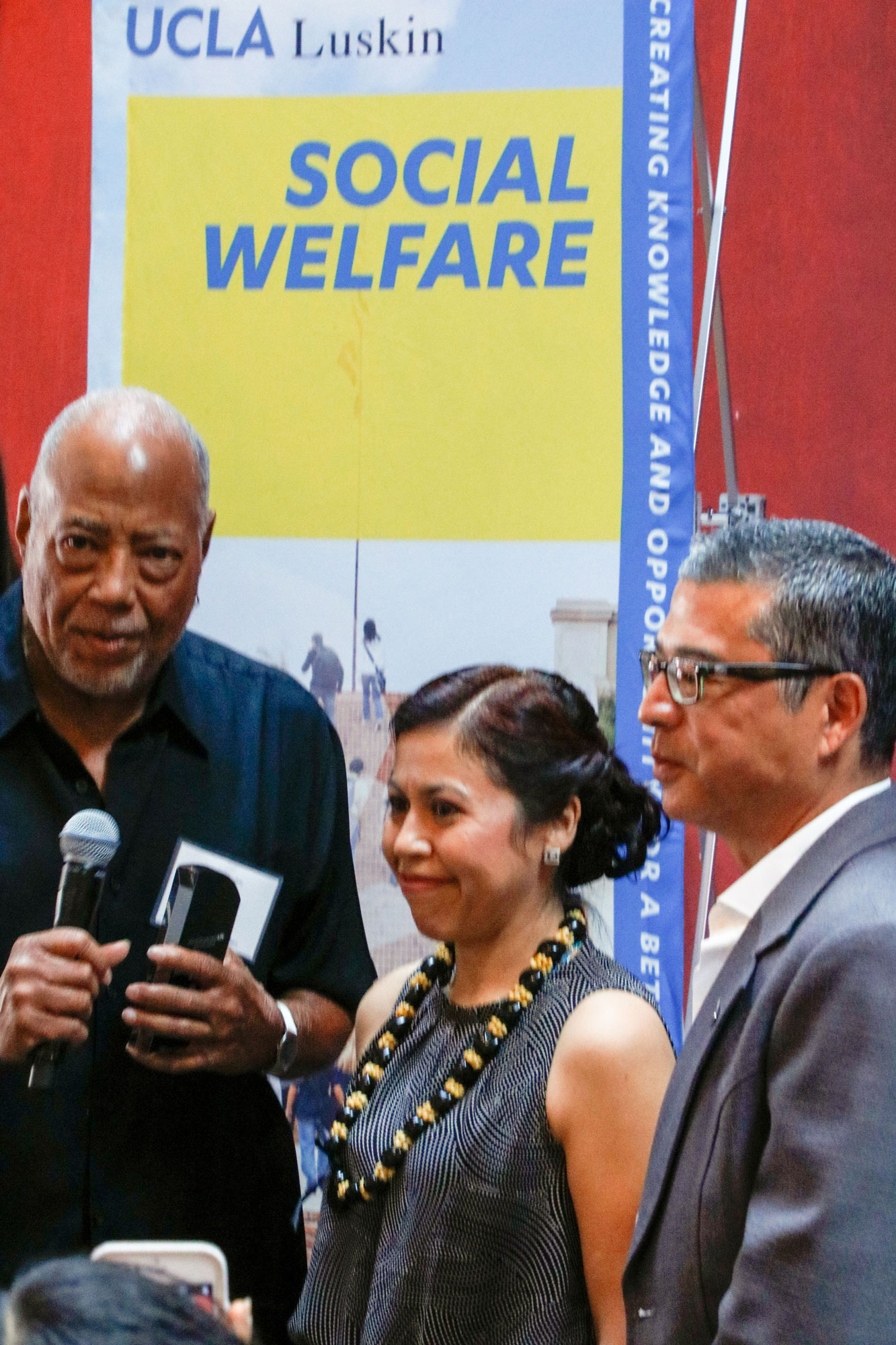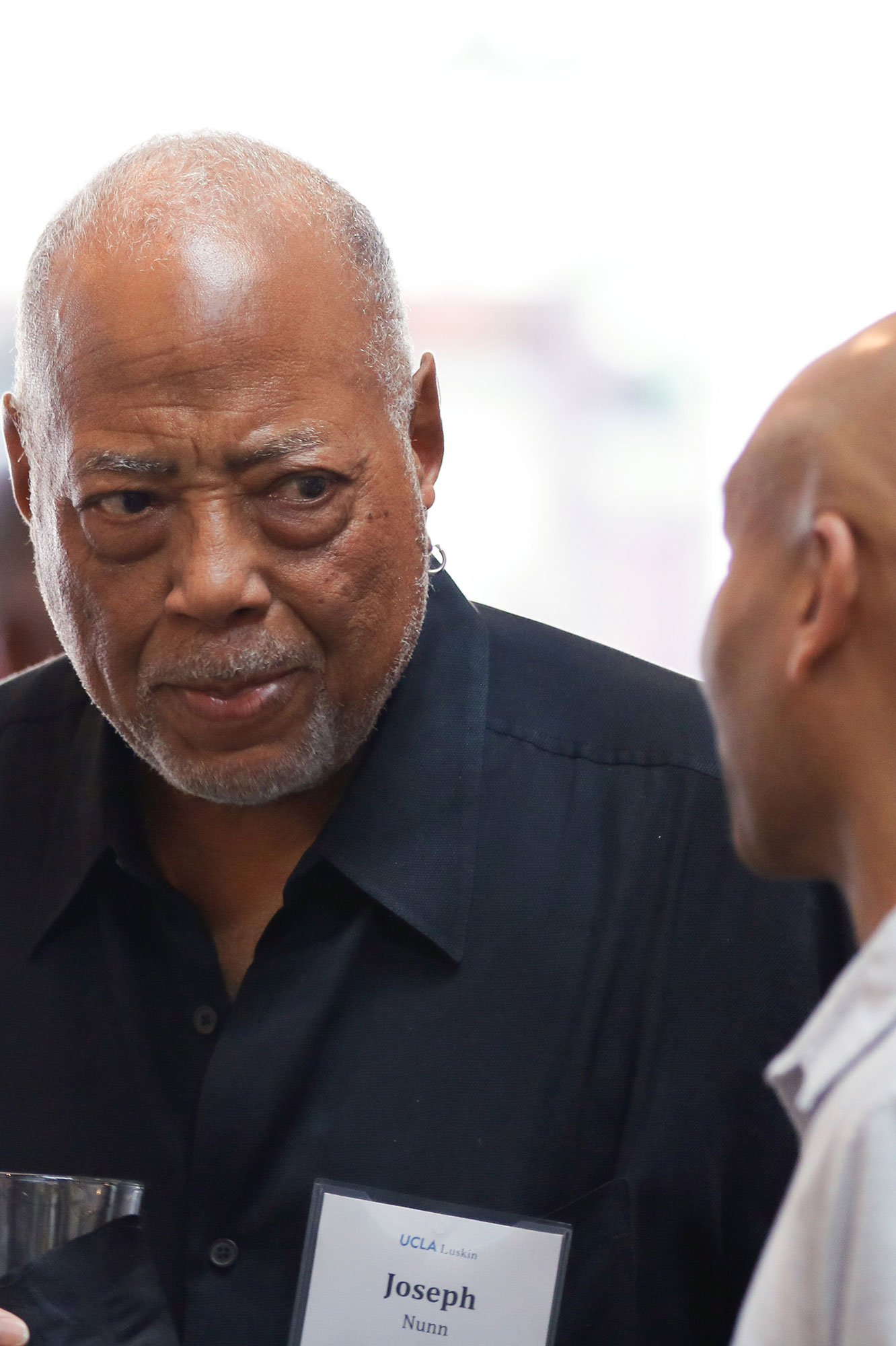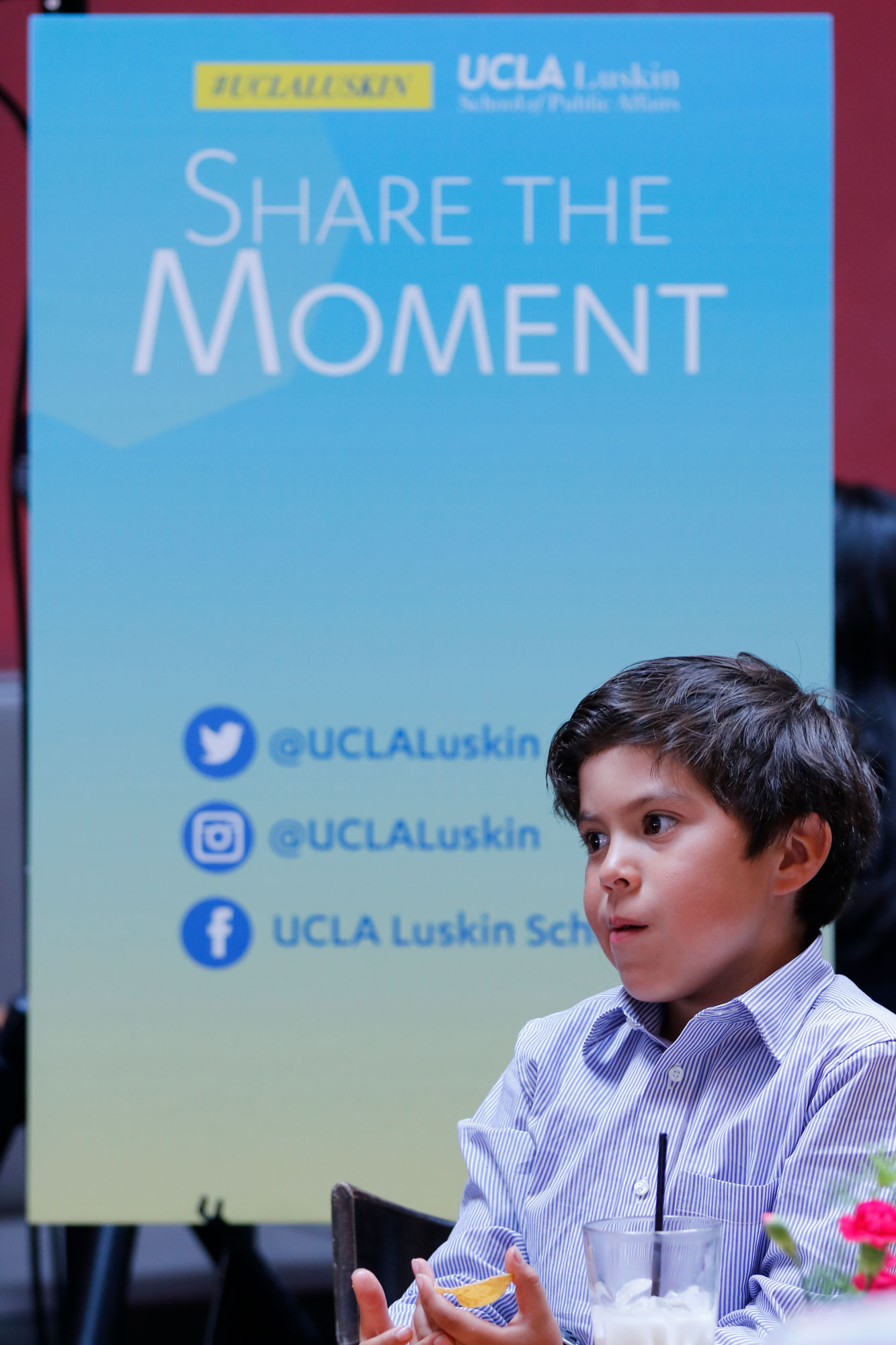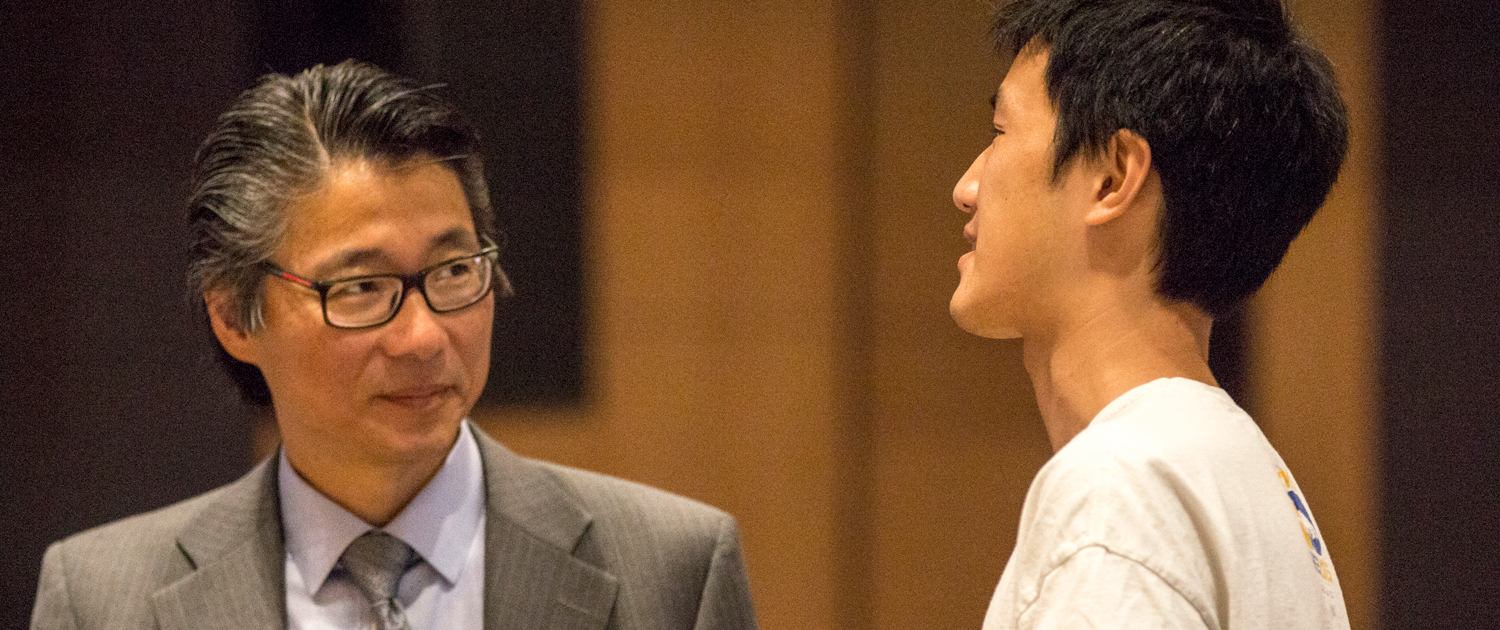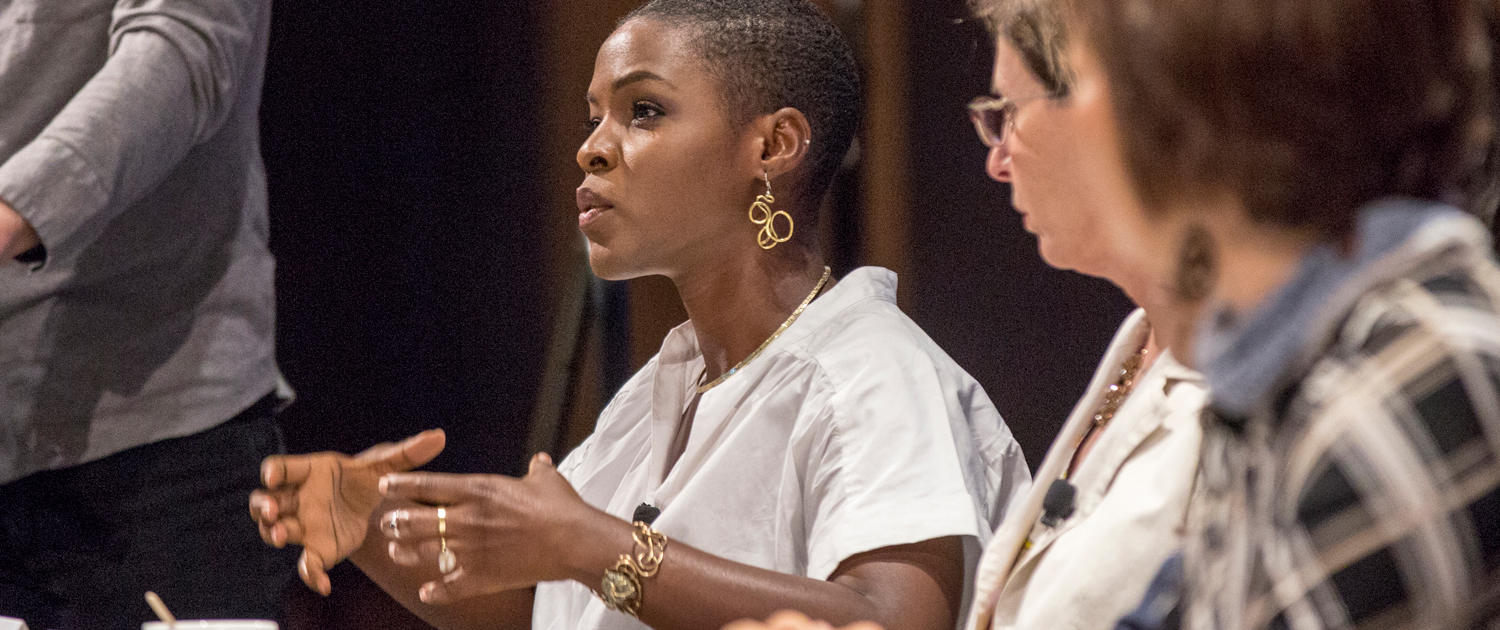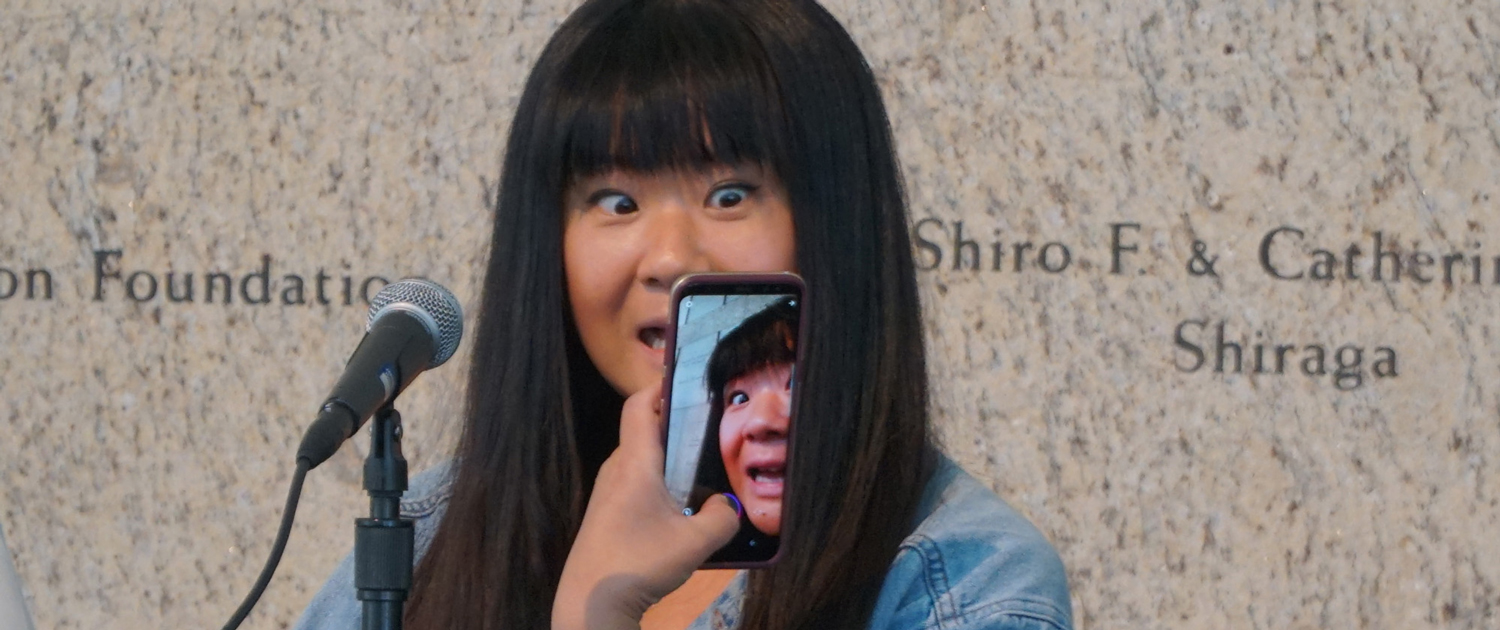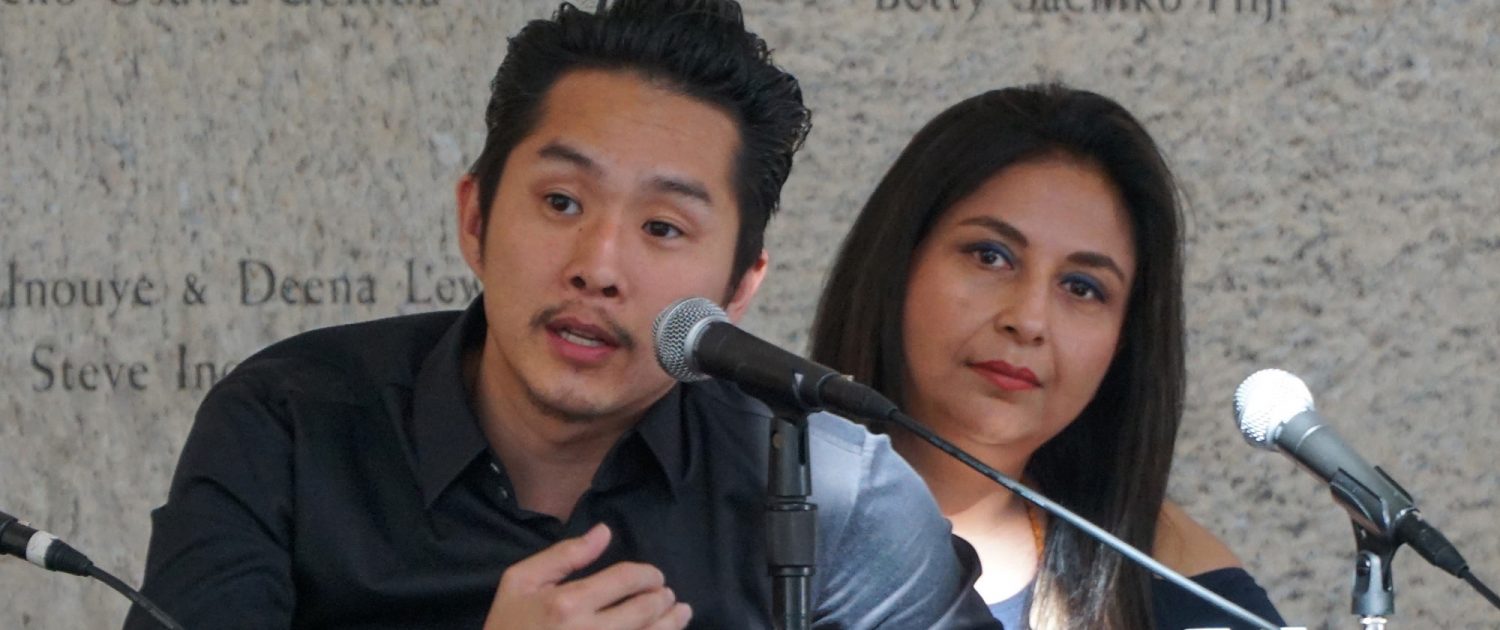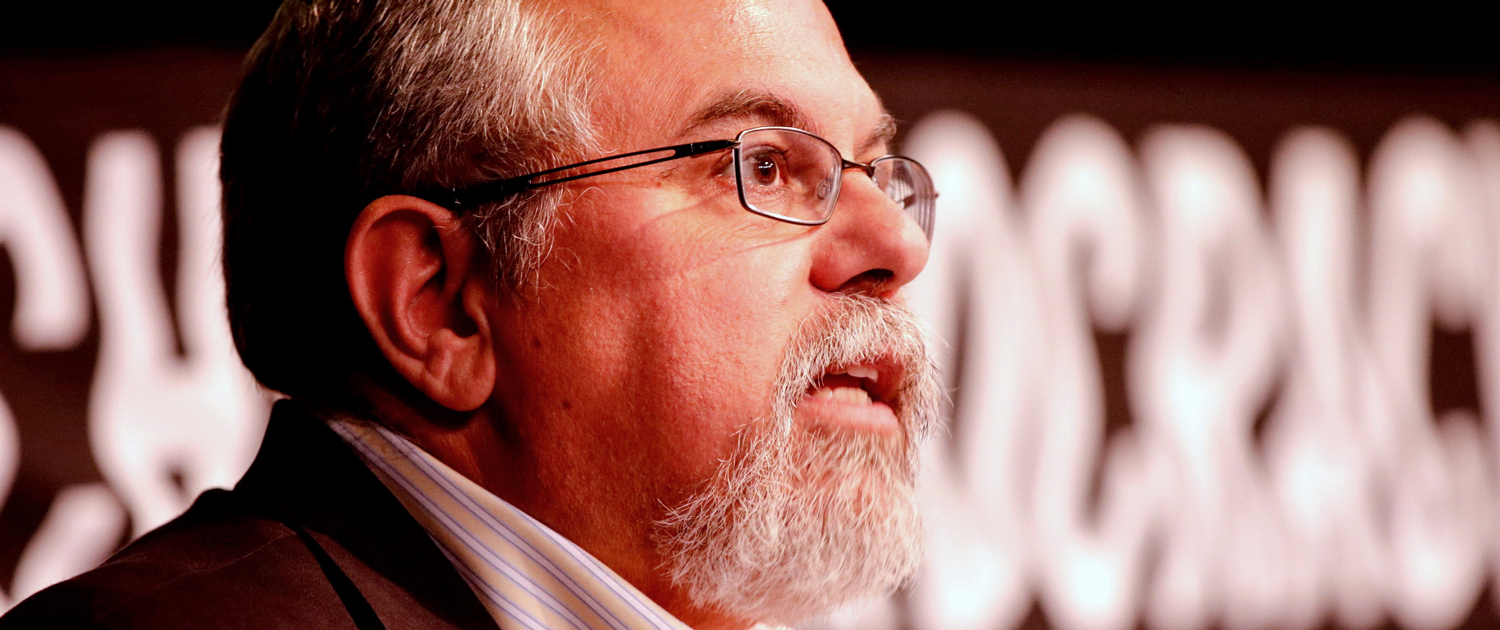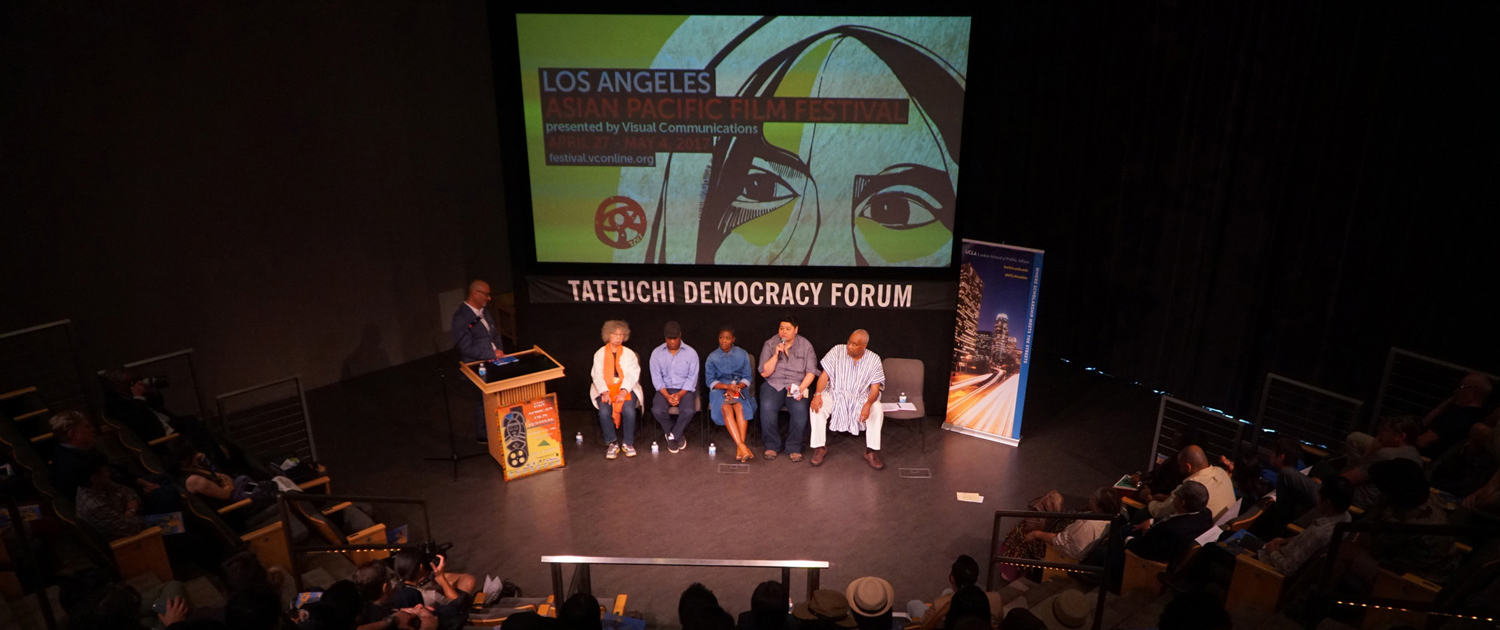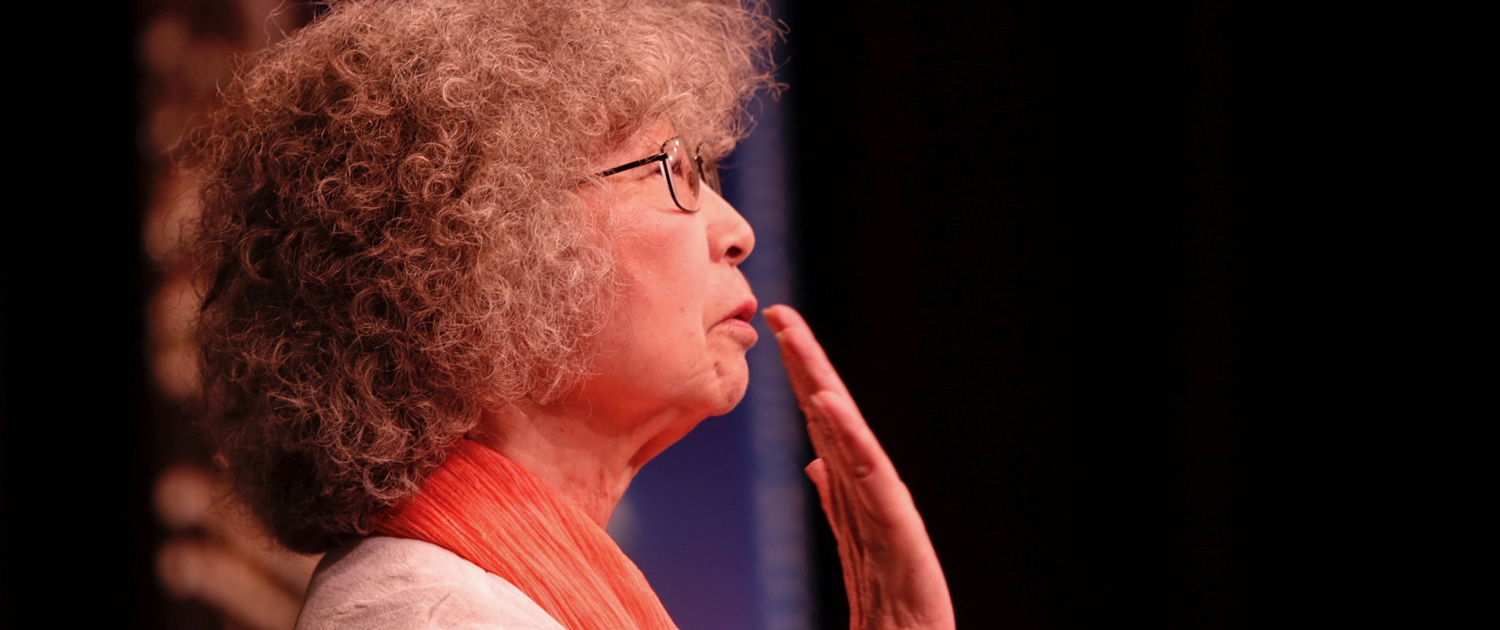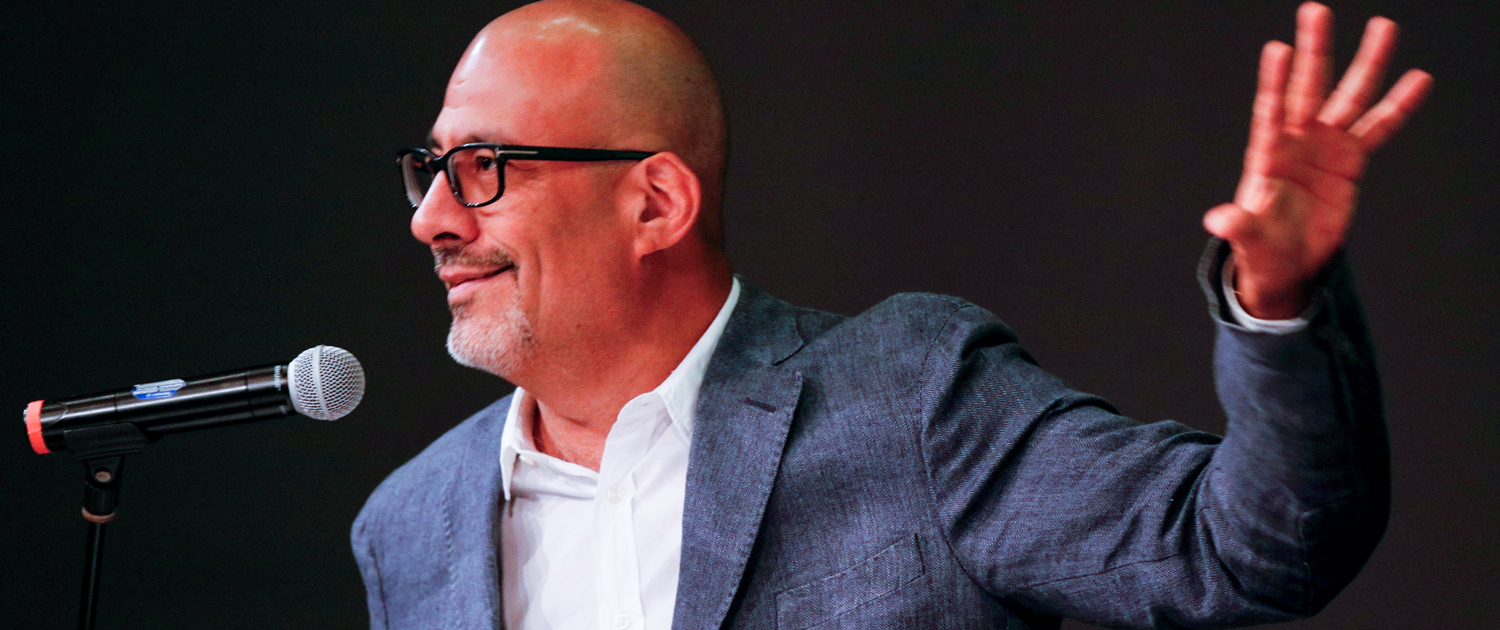Resistance Through Research in the Trump Era Luskin School Ph.D. students host conference on challenging inequality through research in the 'new reality'
By Stan Paul
For urban planning, social welfare and education doctoral students at UCLA, the results of the 2016 election added a new urgency to their role as researchers and to their research agendas.
In response to the rhetoric and policies of the Trump administration following the inauguration, a working group was formed to discuss questions of concern for upcoming scholars in UCLA’s academic and professional programs who are — and will be — working directly with individuals and groups in diverse communities.
This year, the group’s efforts culminated in “Resistance through Research: Social Justice Research and Activism in the Trump Era,” a conference held April 20, 2018, at the UCLA Luskin School of Public Affairs.
“As Ph.D. students in the professional schools, we conduct research on issues of race, gender and class-based discrimination, and we critically examine the opportunities that people have to participate in the institutions that shape their lives,” said Rebecca Crane, an Urban Planning doctoral student and one of the event organizers. “We decided to start a working group to discuss these issues which we hope will create dialogue around the notion of a politically engaged research agenda and its potential to challenge inequality now in this political moment.”
Ananya Roy, director of the Institute on Inequality and Democracy at UCLA Luskin, provided opening remarks.
“Urgency for resistance is not new, but rather persistent,” said Roy, a professor of urban planning, social welfare and geography. “The phenomenon of Trumpism is not unique to the United States.” Rather, it is something that must be treated “as a rupture in the fabric of the world.”
But, she added: “The question is whether we, scholars rooted in academia, have stepped up … whether the global university, a command and control node of knowledge production, can be committed to such forms of research.”
And, Roy pointed out, academic fields and institutions that produce knowledge are not exempt from examination or resistance.
“For me, resistance within, against and from the university has meant a politics of alliance, solidarity and collectivism. It has meant taking and exercising academic freedom through a very visible politics of building collectivity, of building a commons.”
However, she cautioned the room full of students and researchers, “There’s a hell of a lot of risk ahead of you.”
The conference also included a panel focused on research methods illustrating theoretical and political points of departure and avenues in academic research. Panelists represented different career stages from new Ph.D.s to veteran scholars and educators.
Daniel Solórzano, a longtime professor of Education and Chicano/a Studies at UCLA, recalled early in his academic career his decision to go against the grain — and against the advice of senior scholars — to “challenge the dominant frames.” Solórzano whose teaching and research interests include critical race theory, agreed that “the issues are something that are not new,” crediting his students with helping him advance important work and fields of inquiry. “I need a diverse student population to move this work forward.”
Also on the methods panel was Nina Flores, who completed her doctorate in urban planning at UCLA Luskin in 2016. Flores, now an assistant professor of Social and Cultural Analysis at California State University Long Beach, also discussed the challenge and benefits of “push-back.”
“Find your people,” she said, citing her work and collaboration with longtime UCLA Luskin Urban Planning faculty members Leo Estrada and the late Jacqueline Leavitt. By finding the right people to work with, Flores said, “the push-back can be creative,” as well as affirming.
Also making up the methods panel were Kristina Lovato-Hermann SW Ph.D. ’17, now assistant professor of social work at Cal State University Long Beach, and Karen Umemoto, professor of Urban Planning and Asian American Studies. Umemoto also serves as the inaugural holder of the Helen and Morgan Chu Endowed Director’s Chair in the UCLA Asian American Studies Center.
A second panel, devoted to research justice, included Saba Waheed, research director at the UCLA Labor Center; Yvonne Yen Liu, research director of the Solidarity Research Center in Los Angeles; and Lolita Andrada Lledo, associate director of the Los Angeles-based Pilipino Workers Center.
“We wanted today to be an opportunity to connect with people outside our departments who might be working on similar topics … as well as community-based researchers working on these topics,” Crane said.
In fact, a class of UCLA undergrads was able to take advantage of the knowledge shared at the conference. Diya Bose, a Ph.D. candidate in Sociology, brought students from her UCLA freshman cluster course on Interracial Dynamics in American Culture and Society.
“It was important for them to witness how the UCLA students are continuing to fight for justice and liberation through education, research and working with communities of color,” said Bose. “Following the Luskin event, my students shared with me that they felt inspired and empowered to participate in the UCLA community, not as passive consumers of knowledge, but as producers of knowledge.”
The conference also featured research workshops in three subgroups: Racial and Gender Justice, Public Services and Spaces, and Migration and Displacement.
“In my internship we do a lot of research and we partner with a lot of community organizations,” said Evelyn Larios, a second-year MSW student at UCLA. “So this is really nice because it really reinforces the idea that as we move forward in collective research we need to partner with communities to build that relationship.”
Larios added: “At some point it take compromise. That’s important to society and democracy in general.”
Click or swipe below to view more photos from this event on Flickr:
